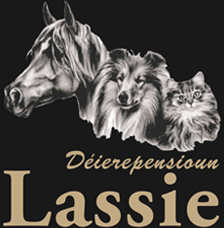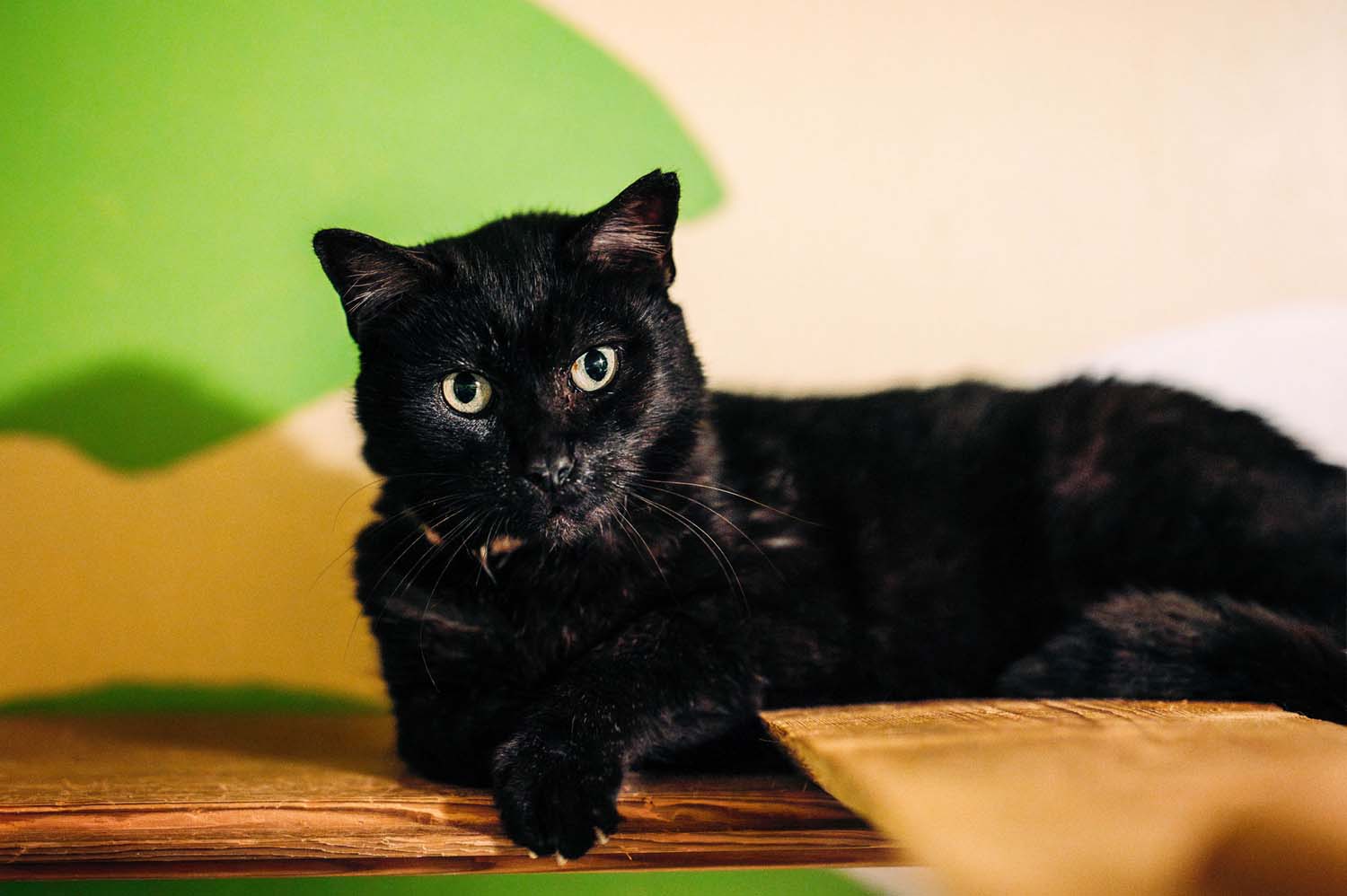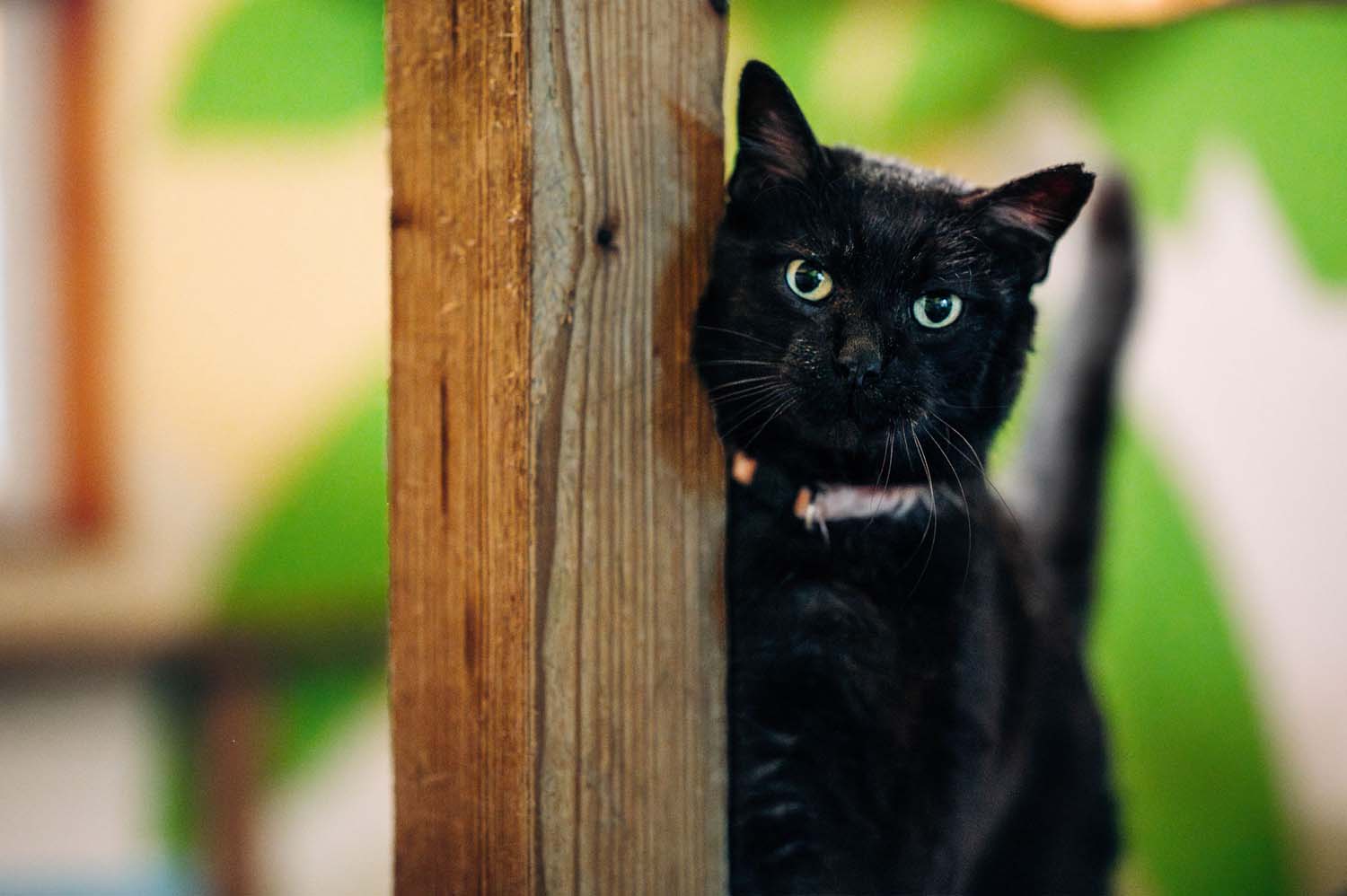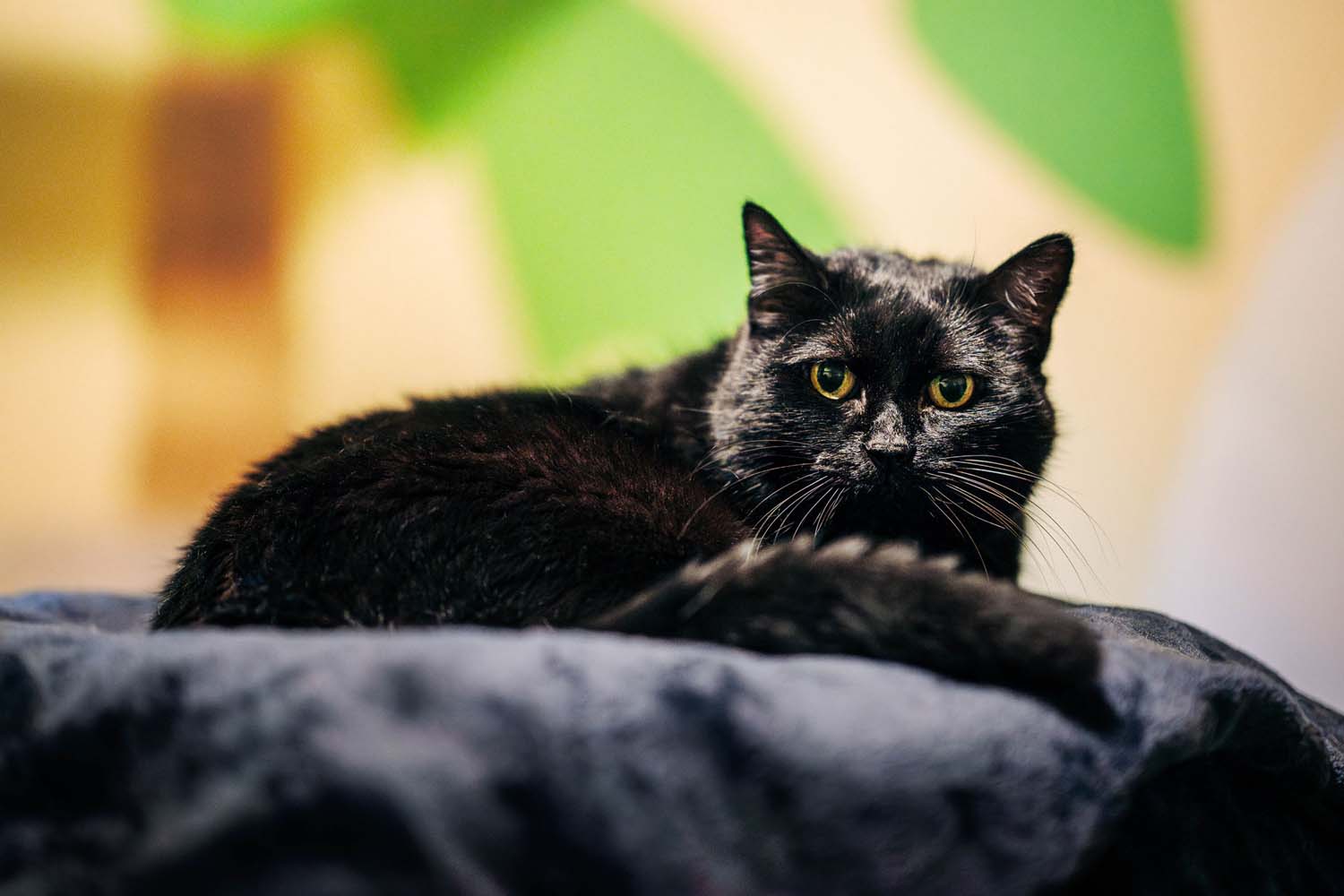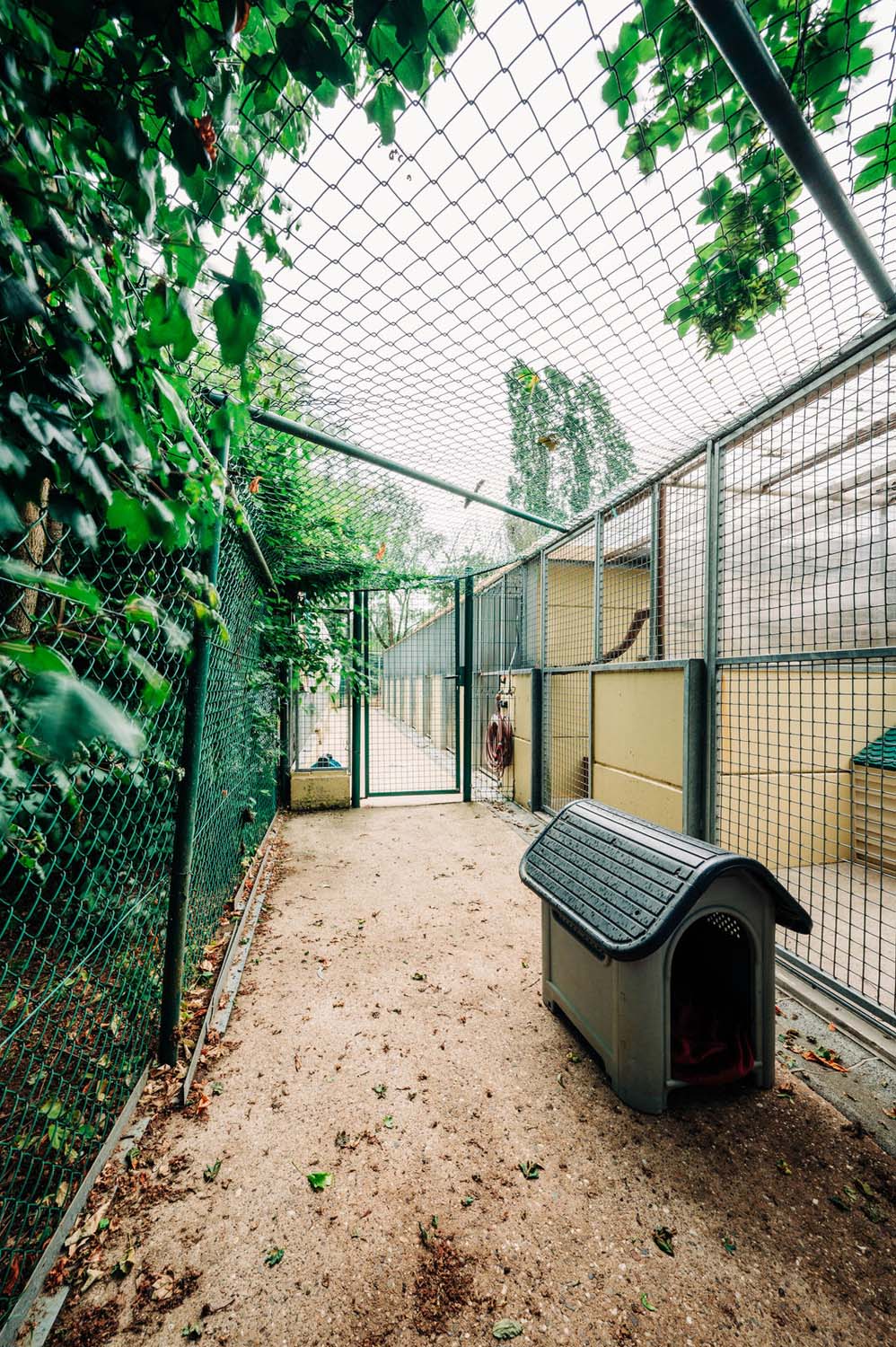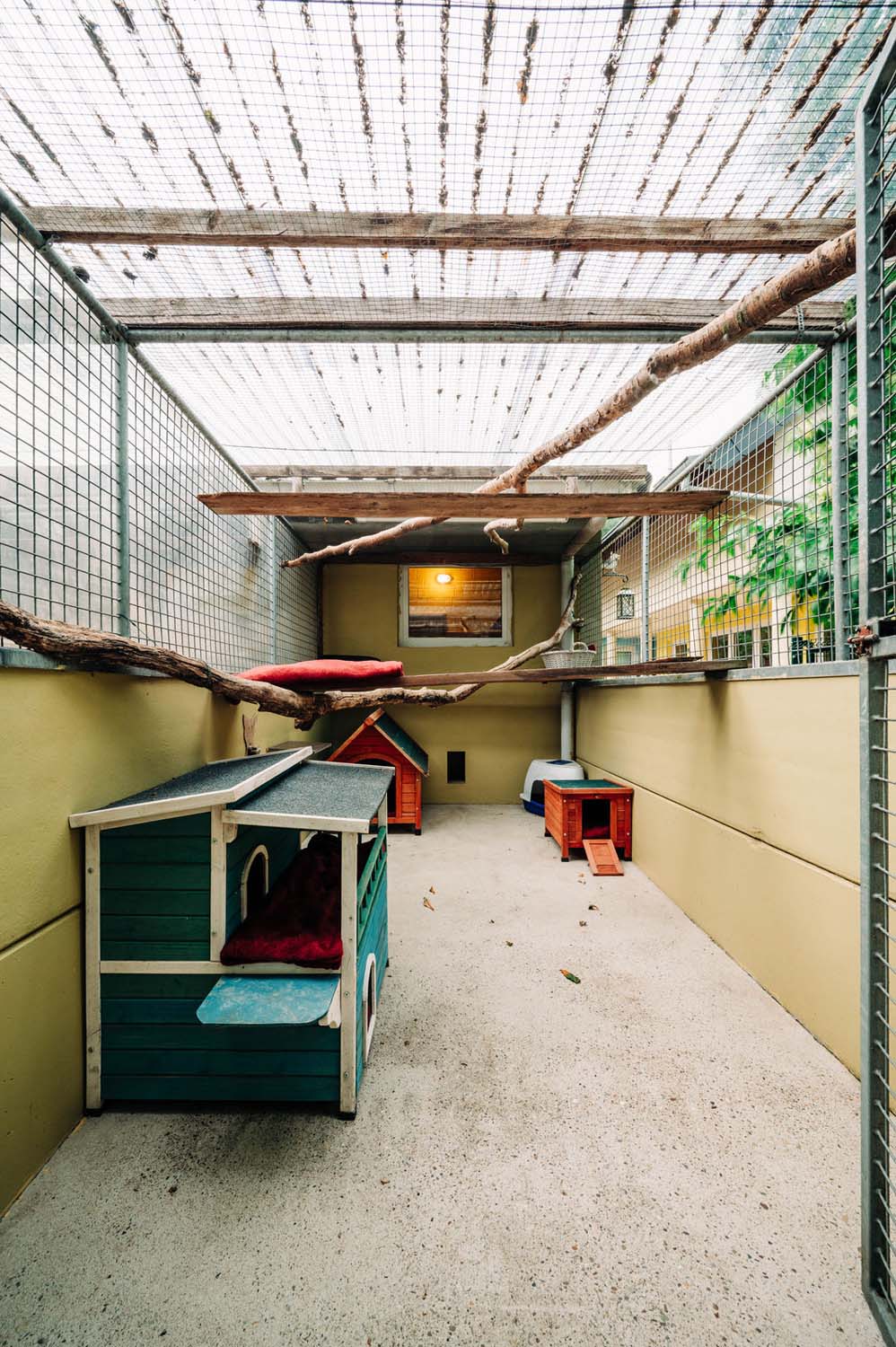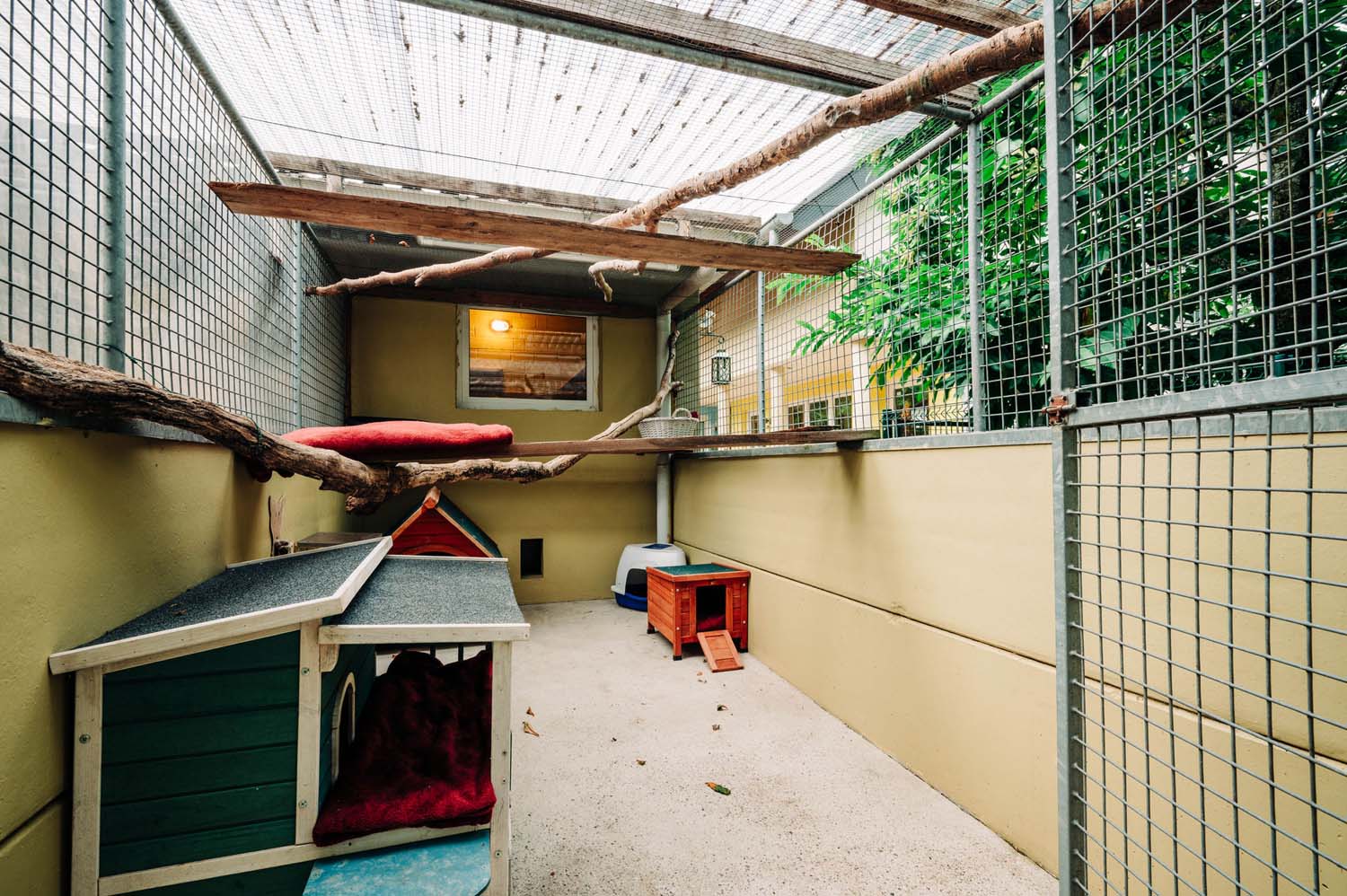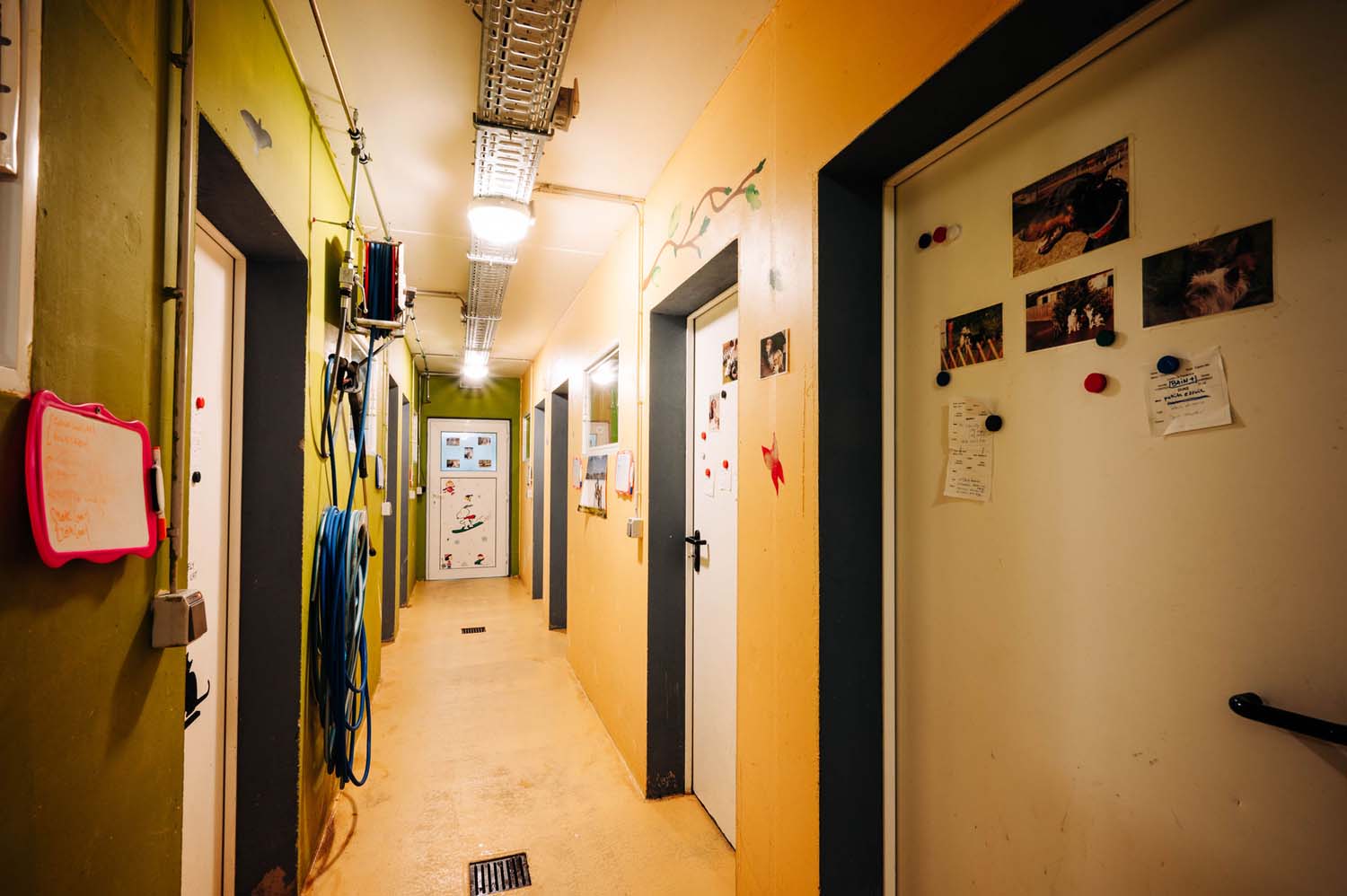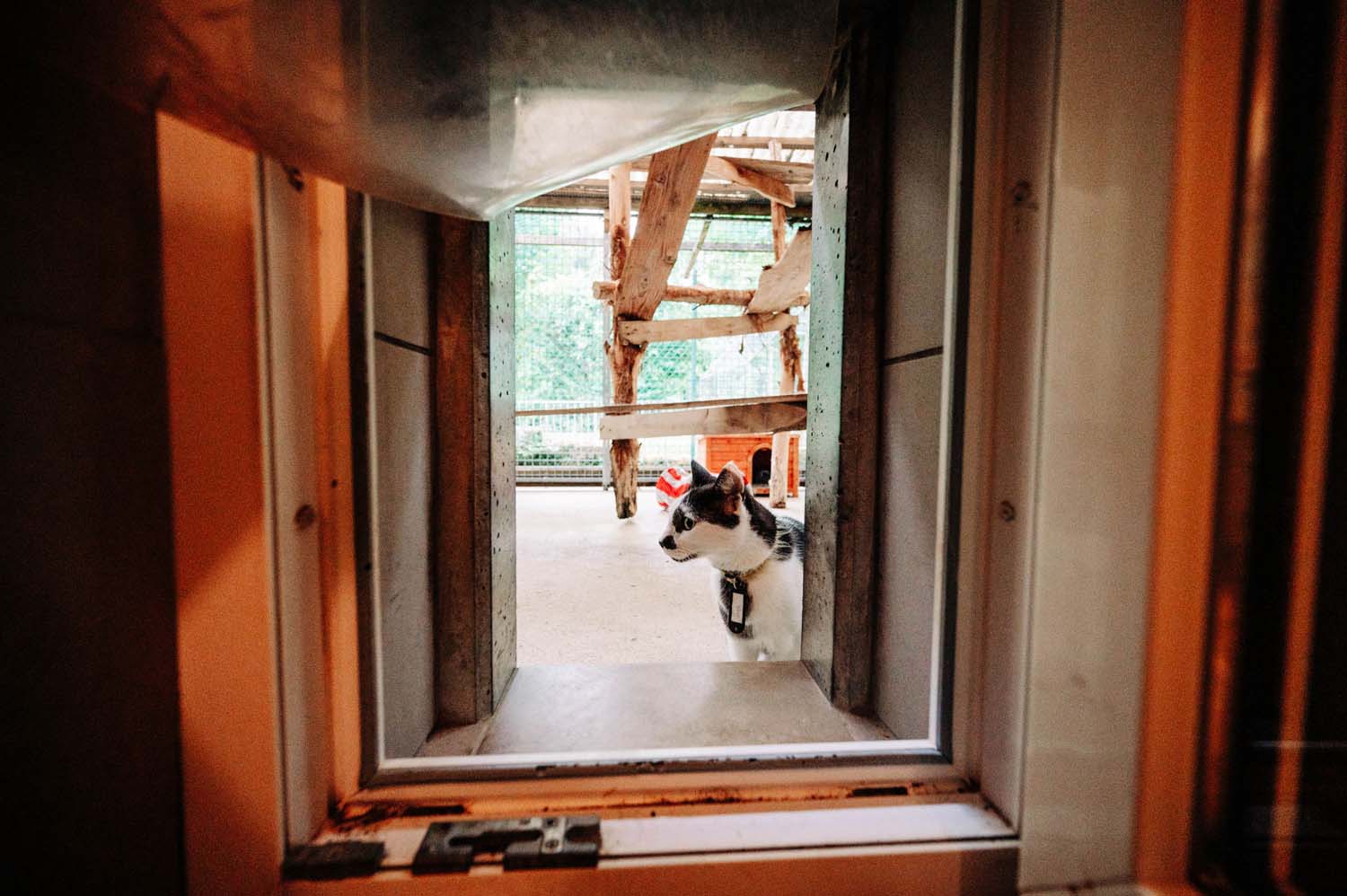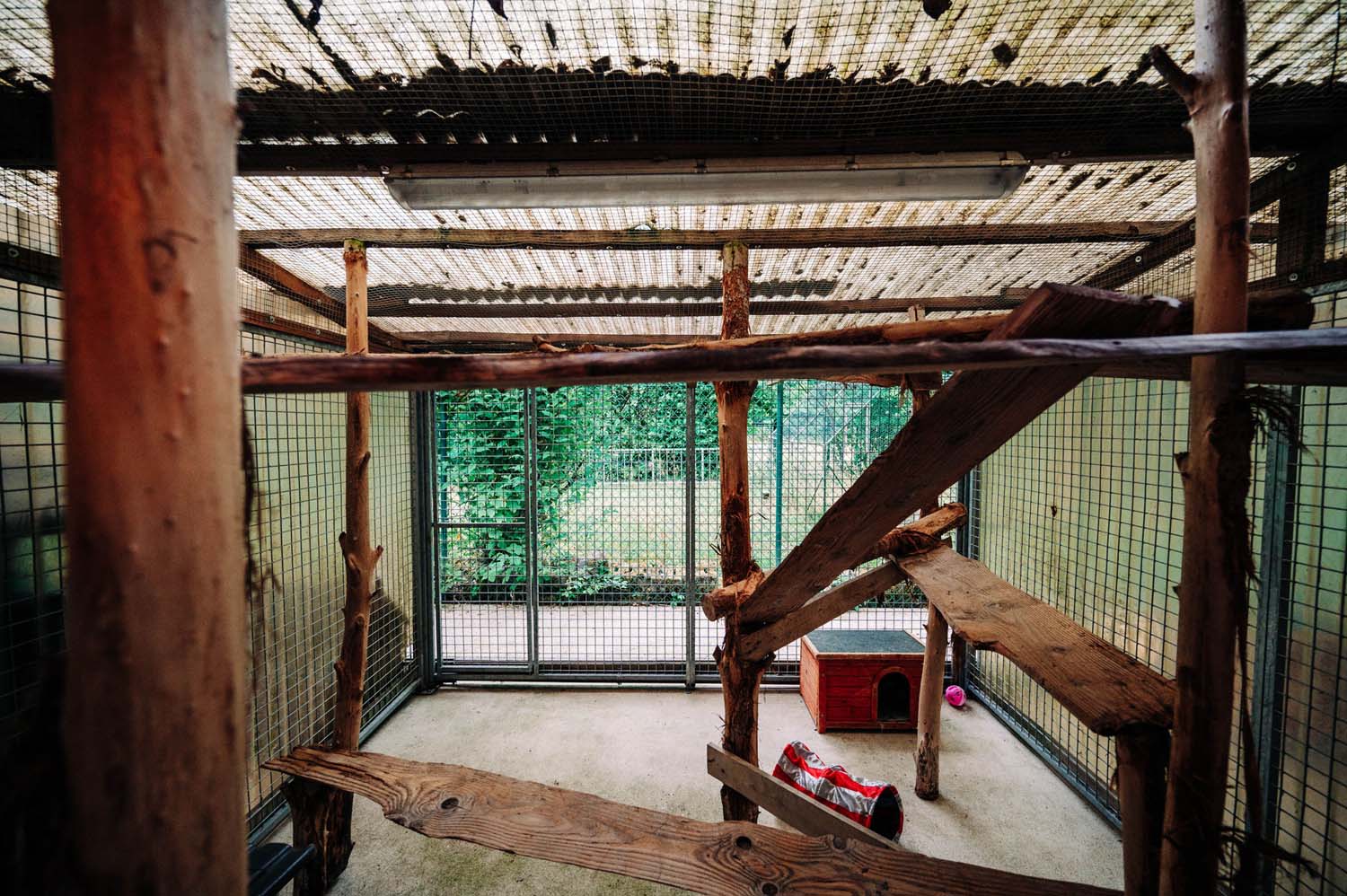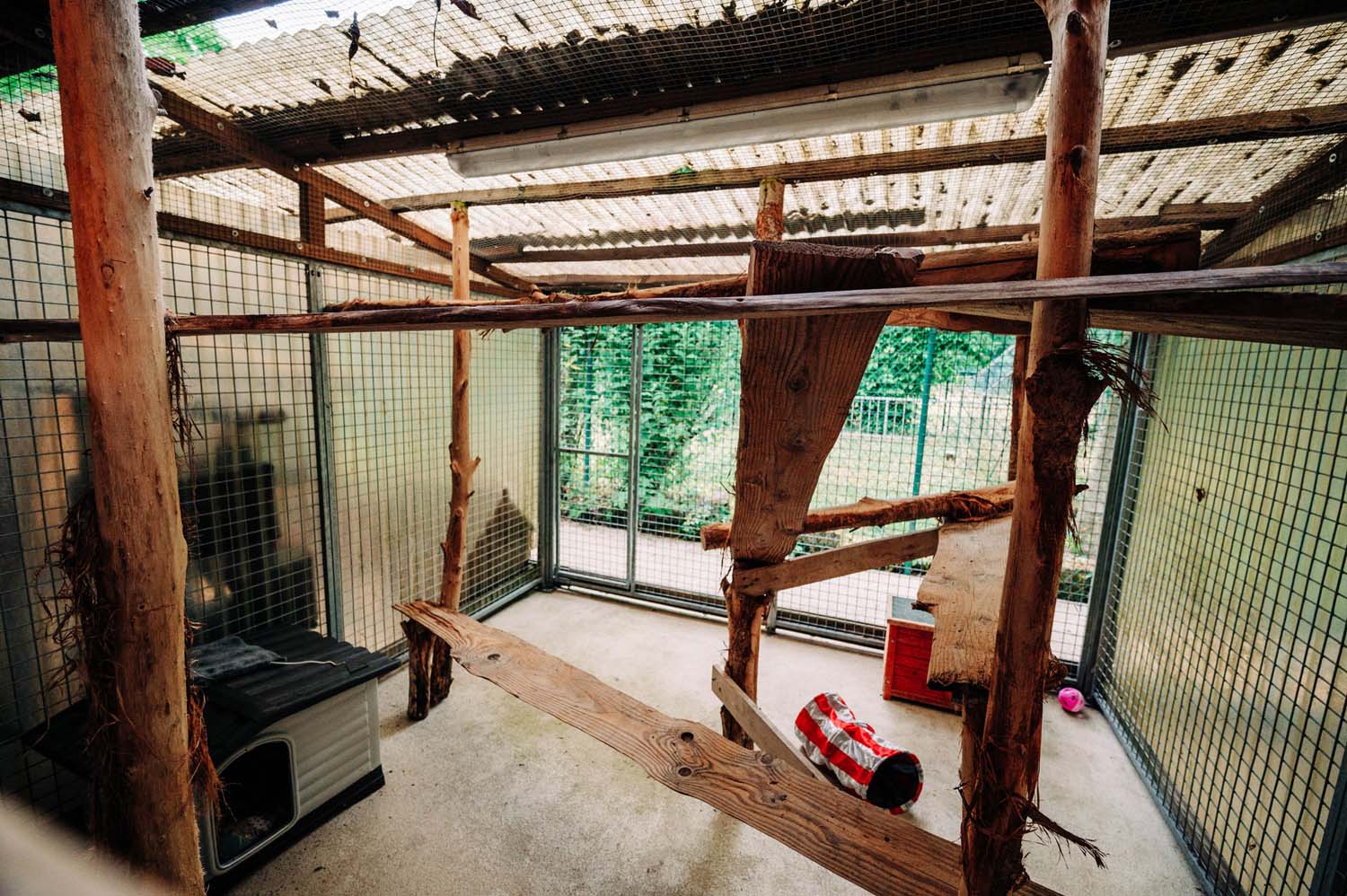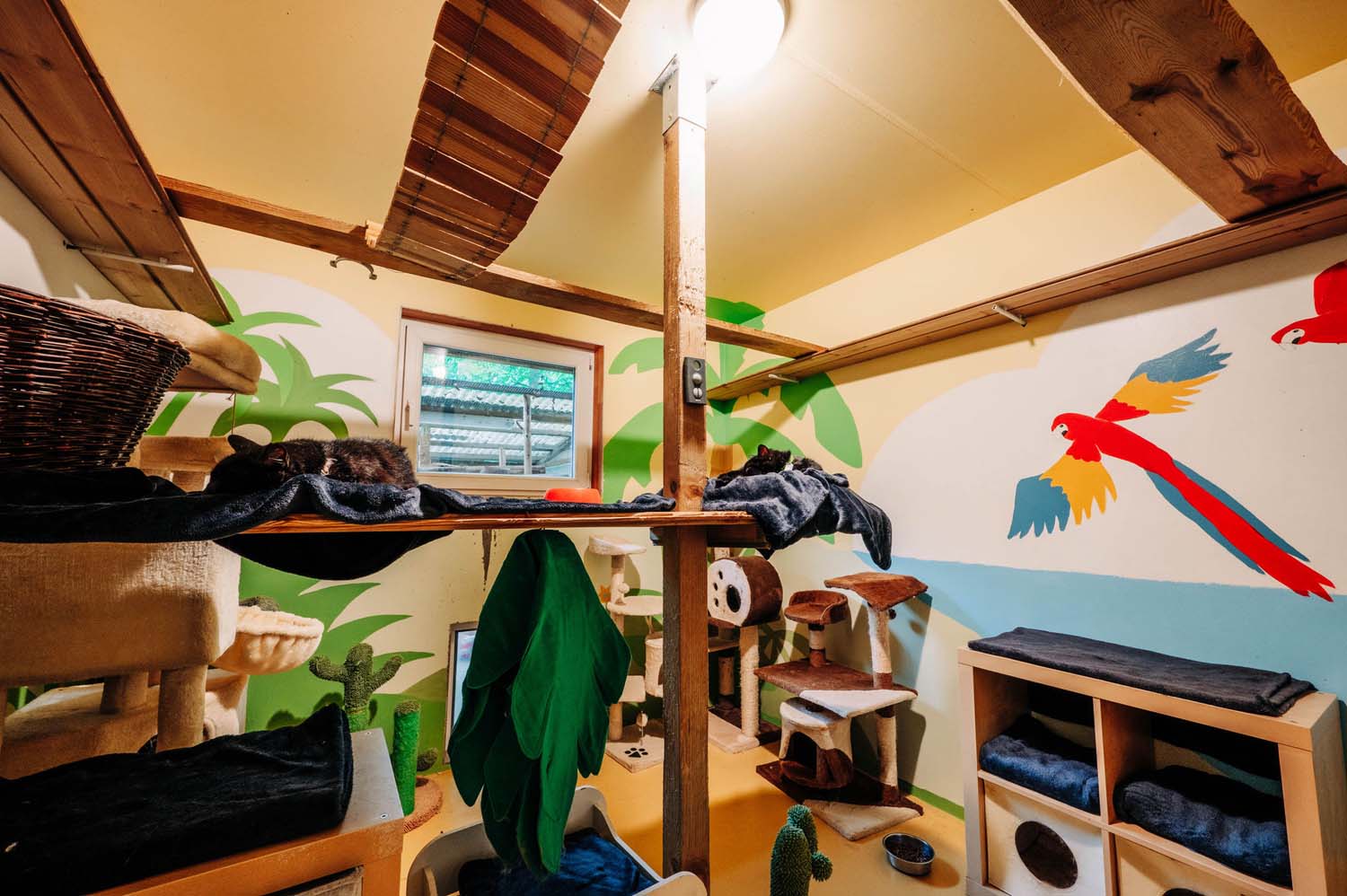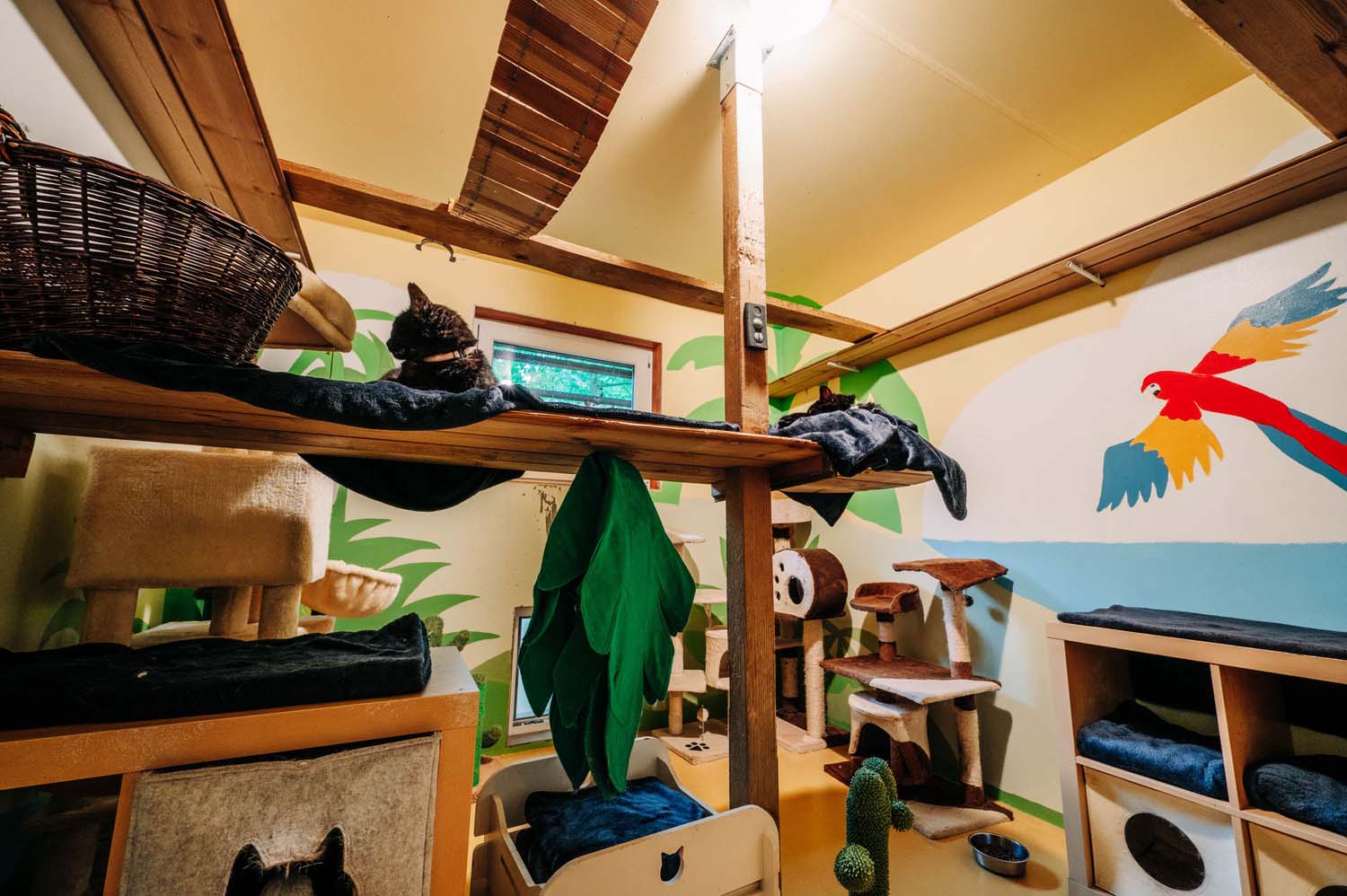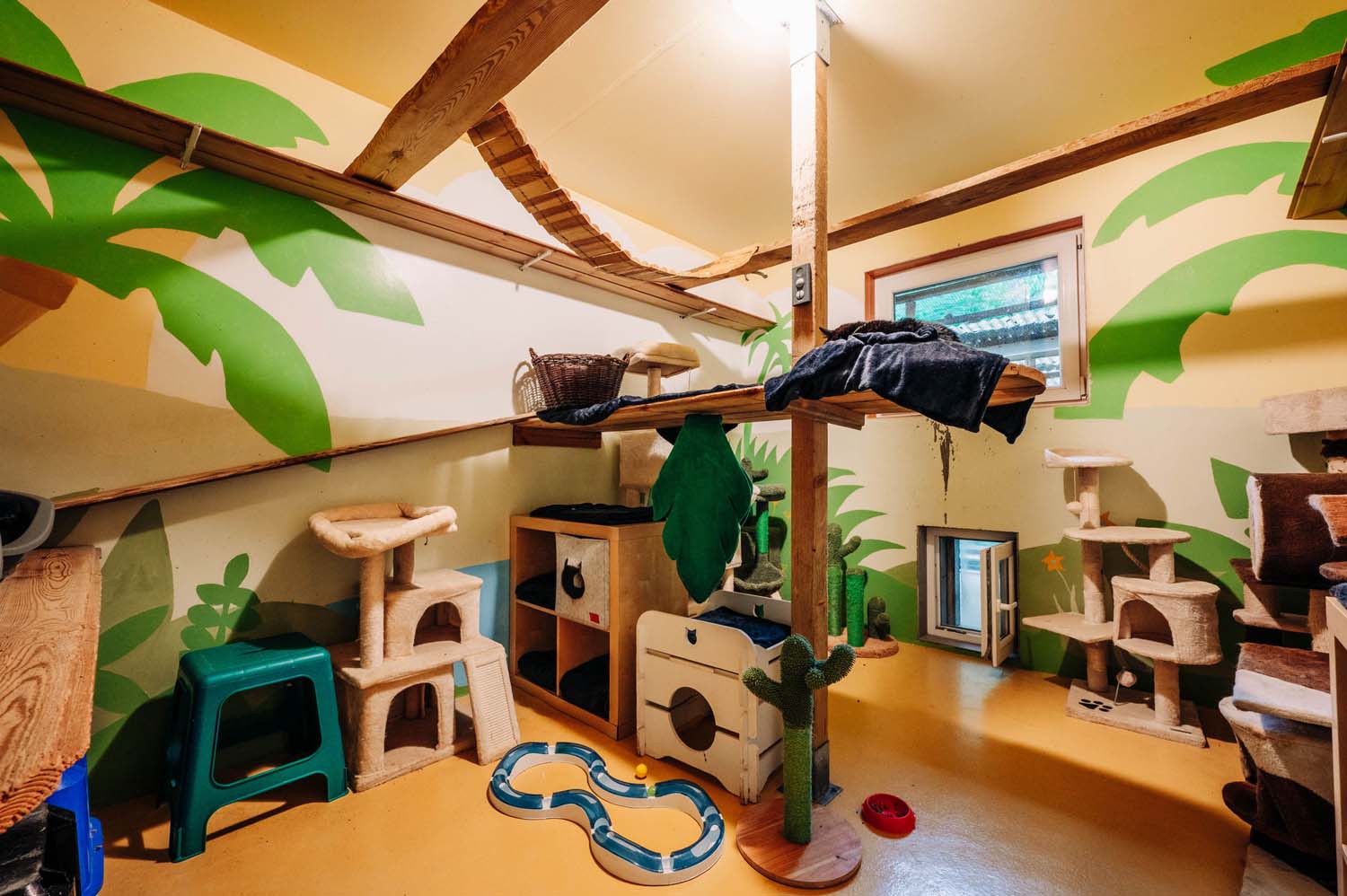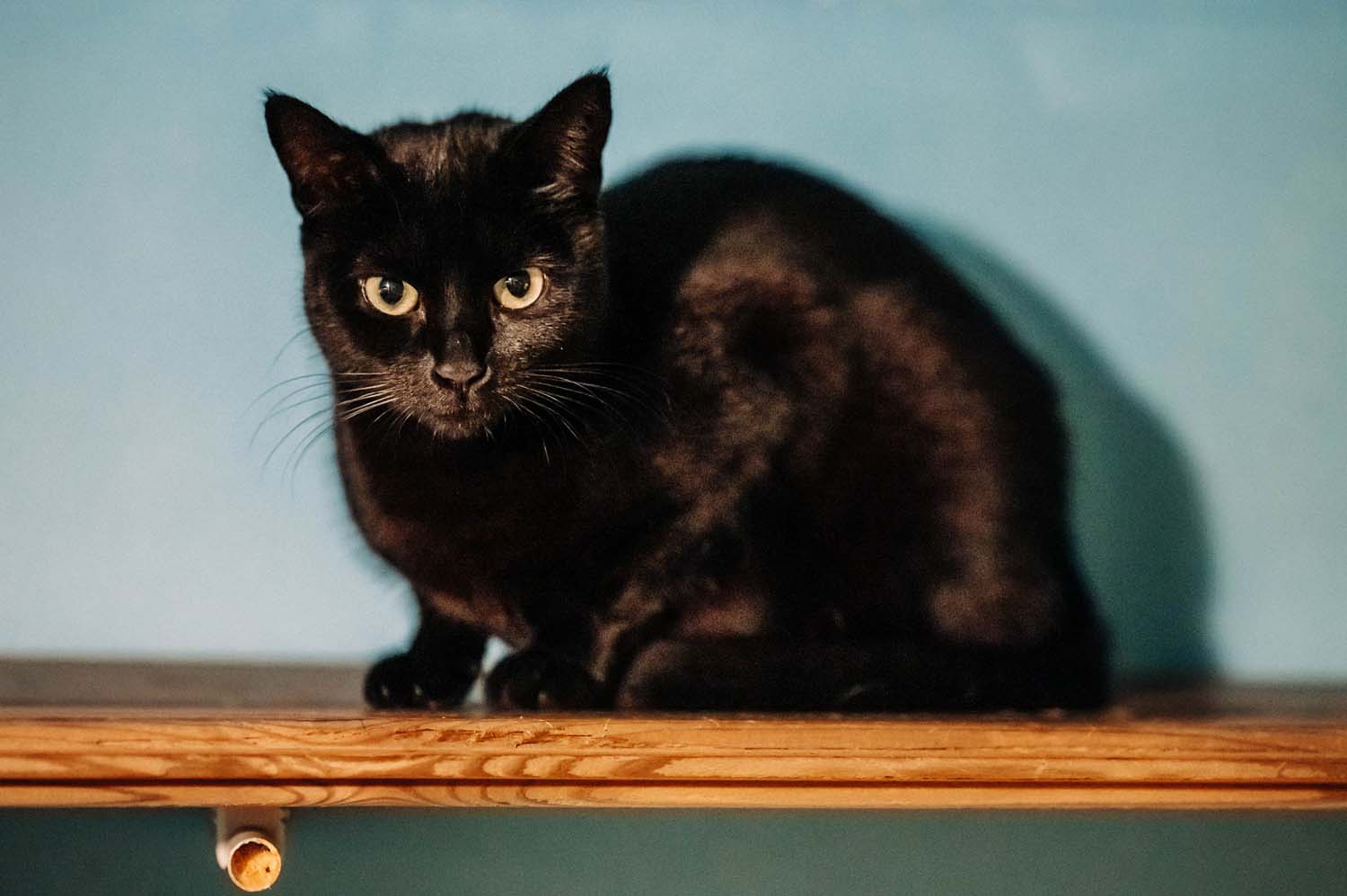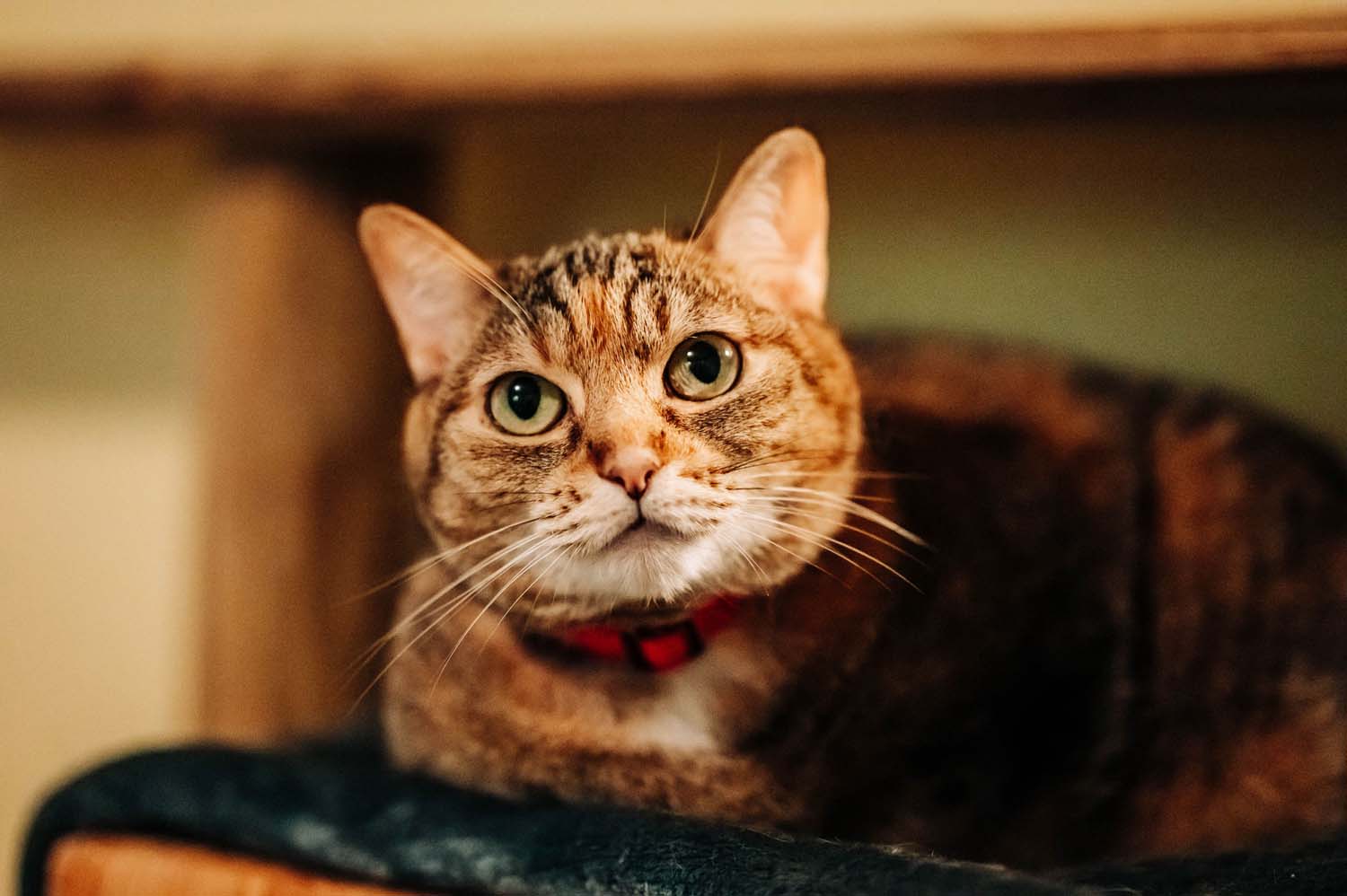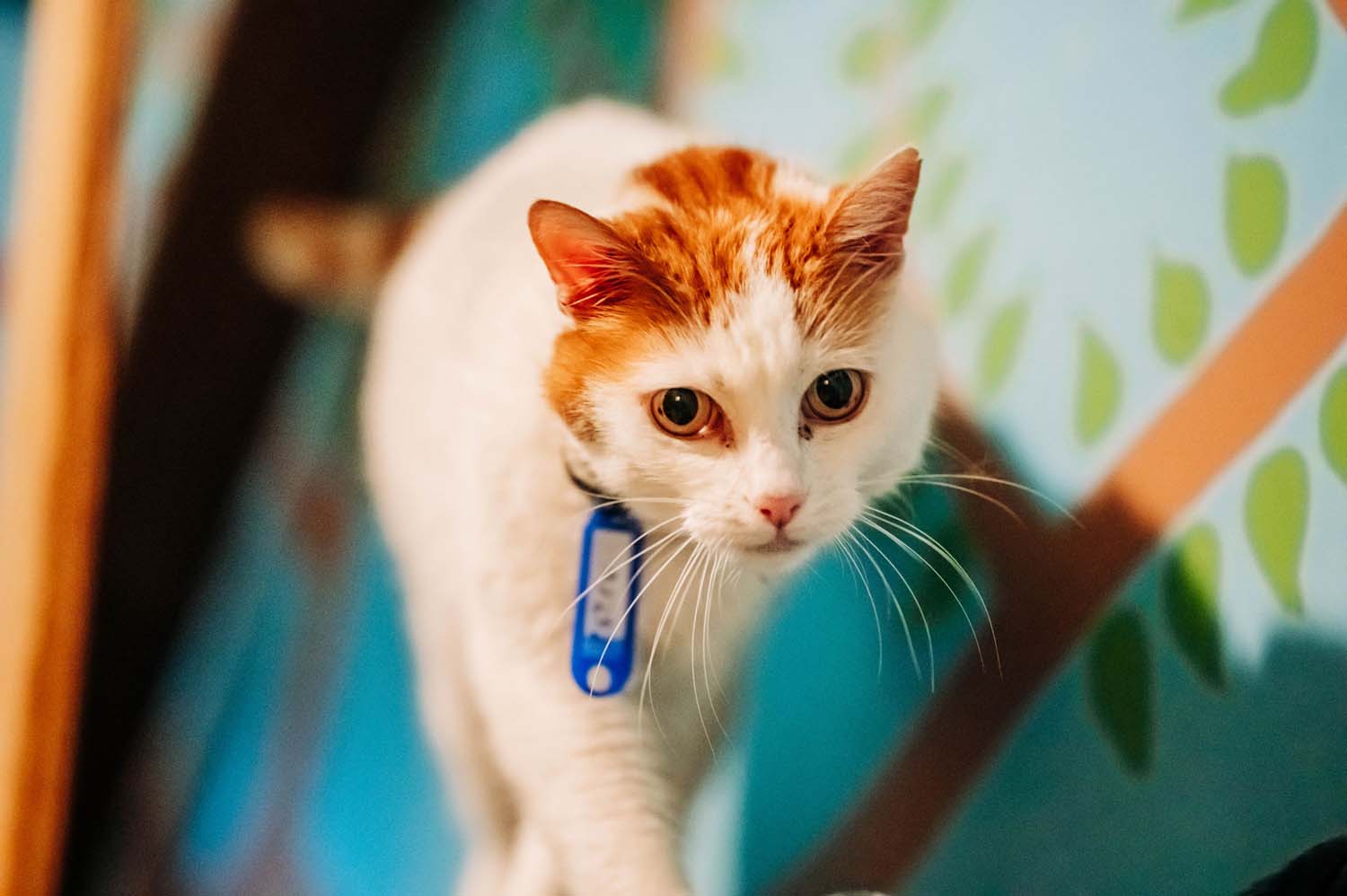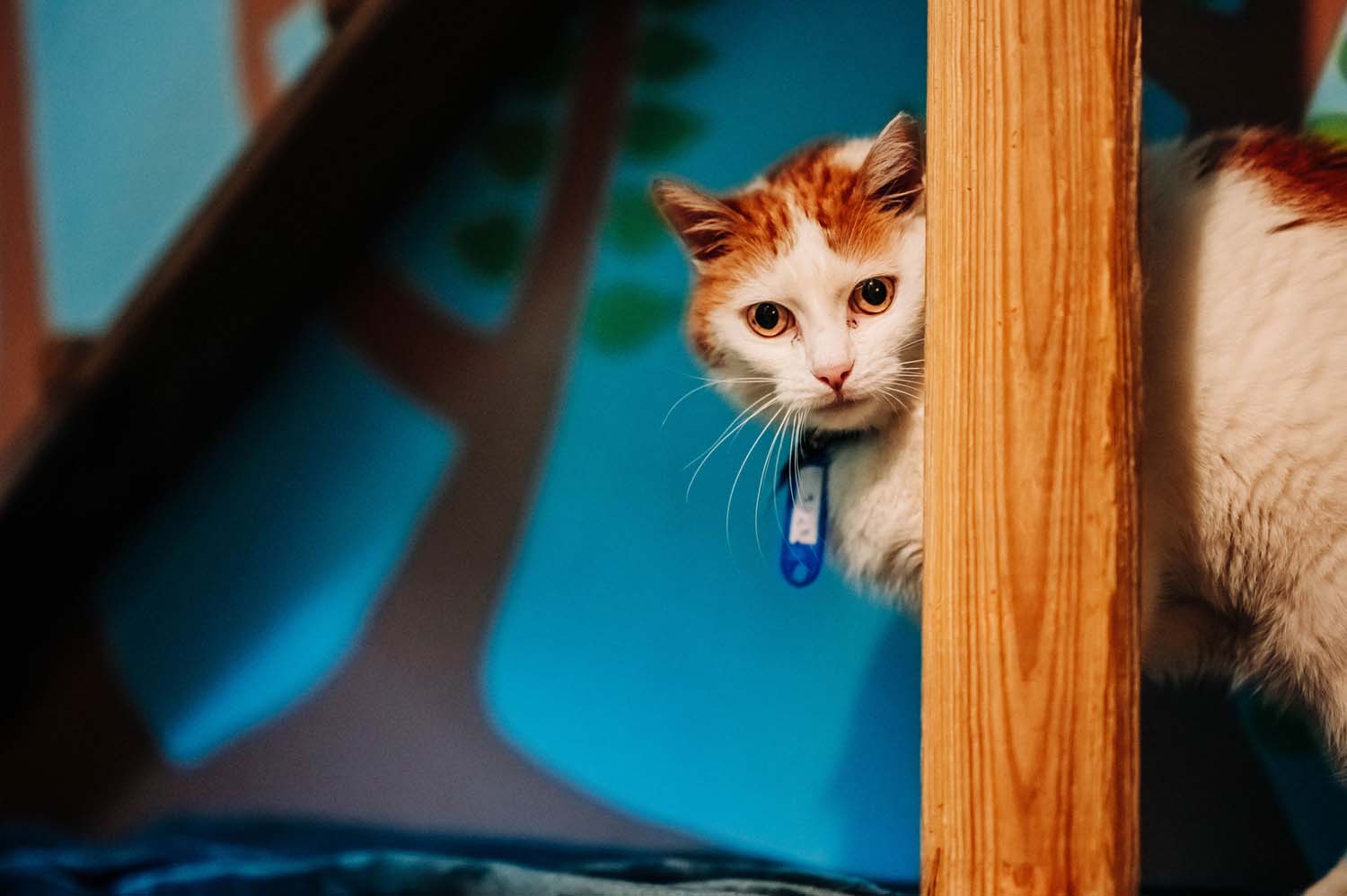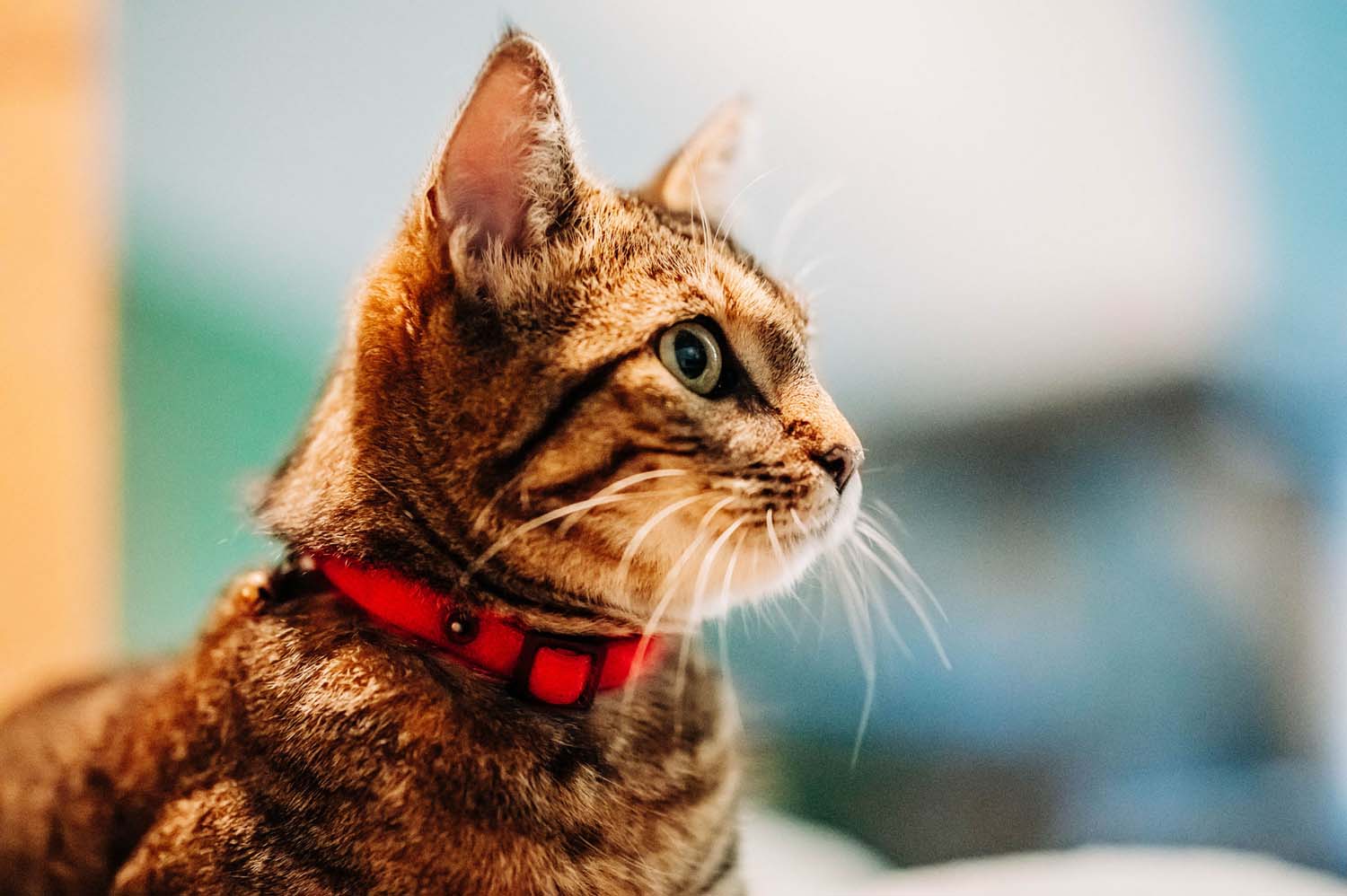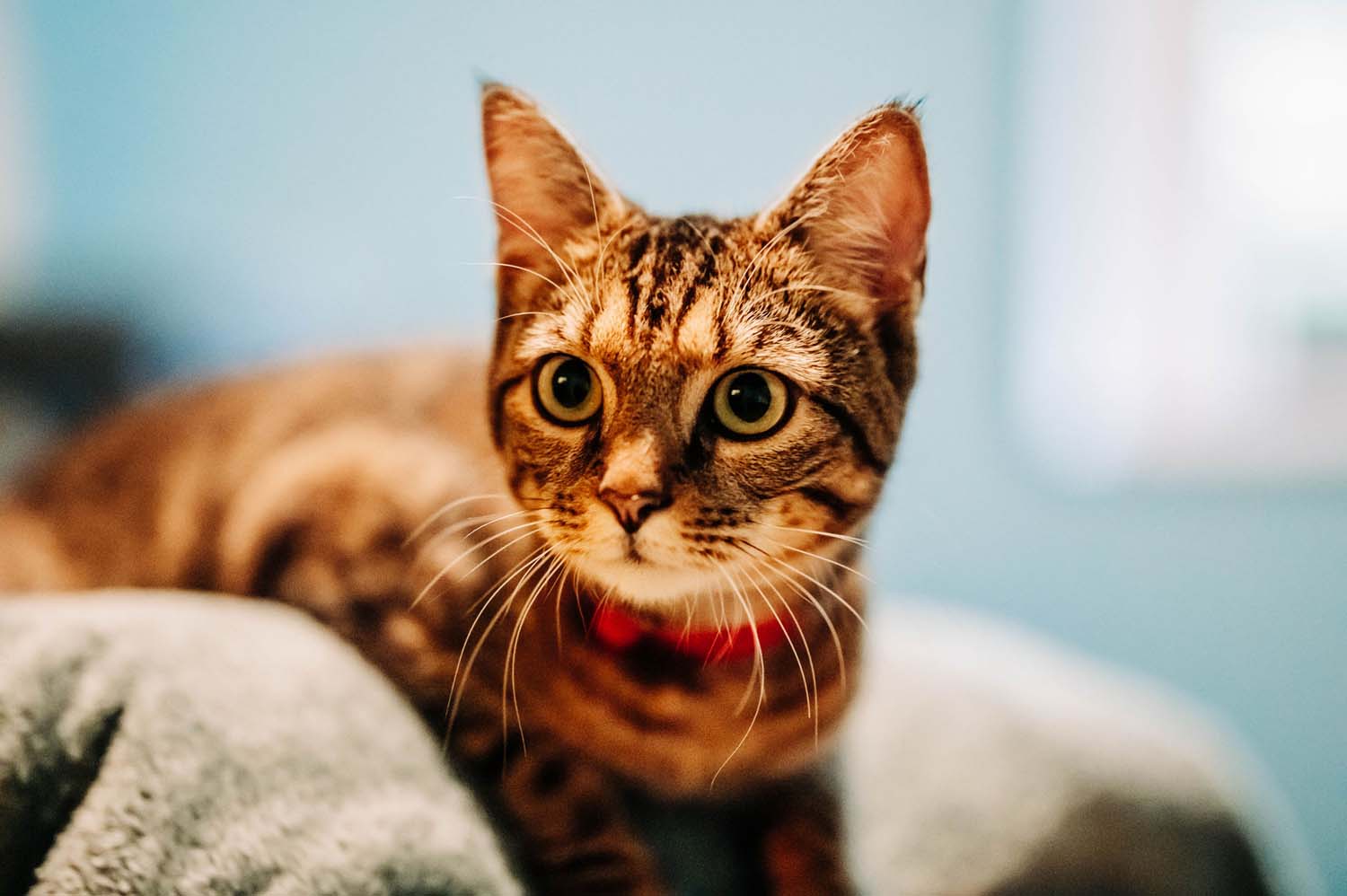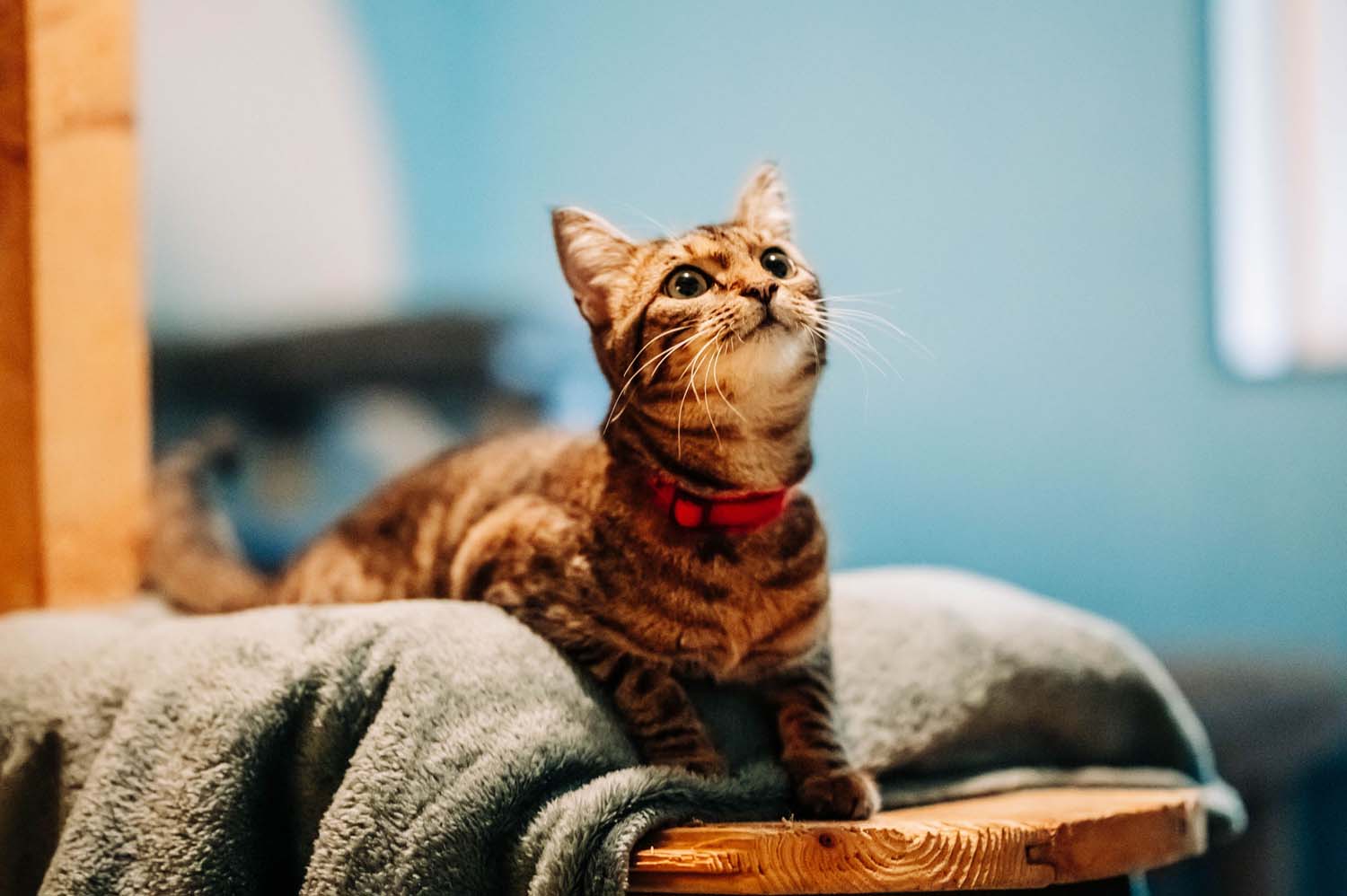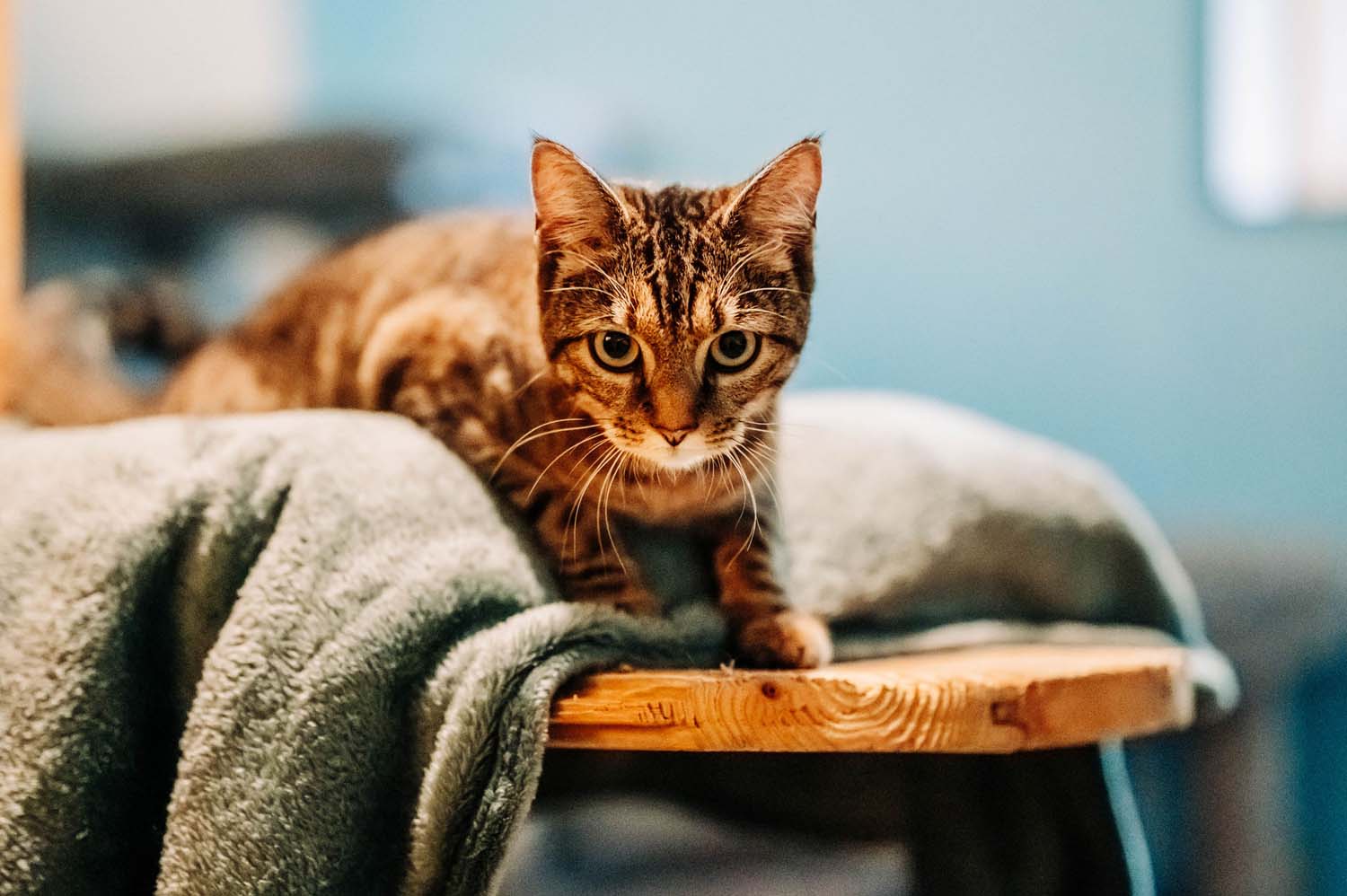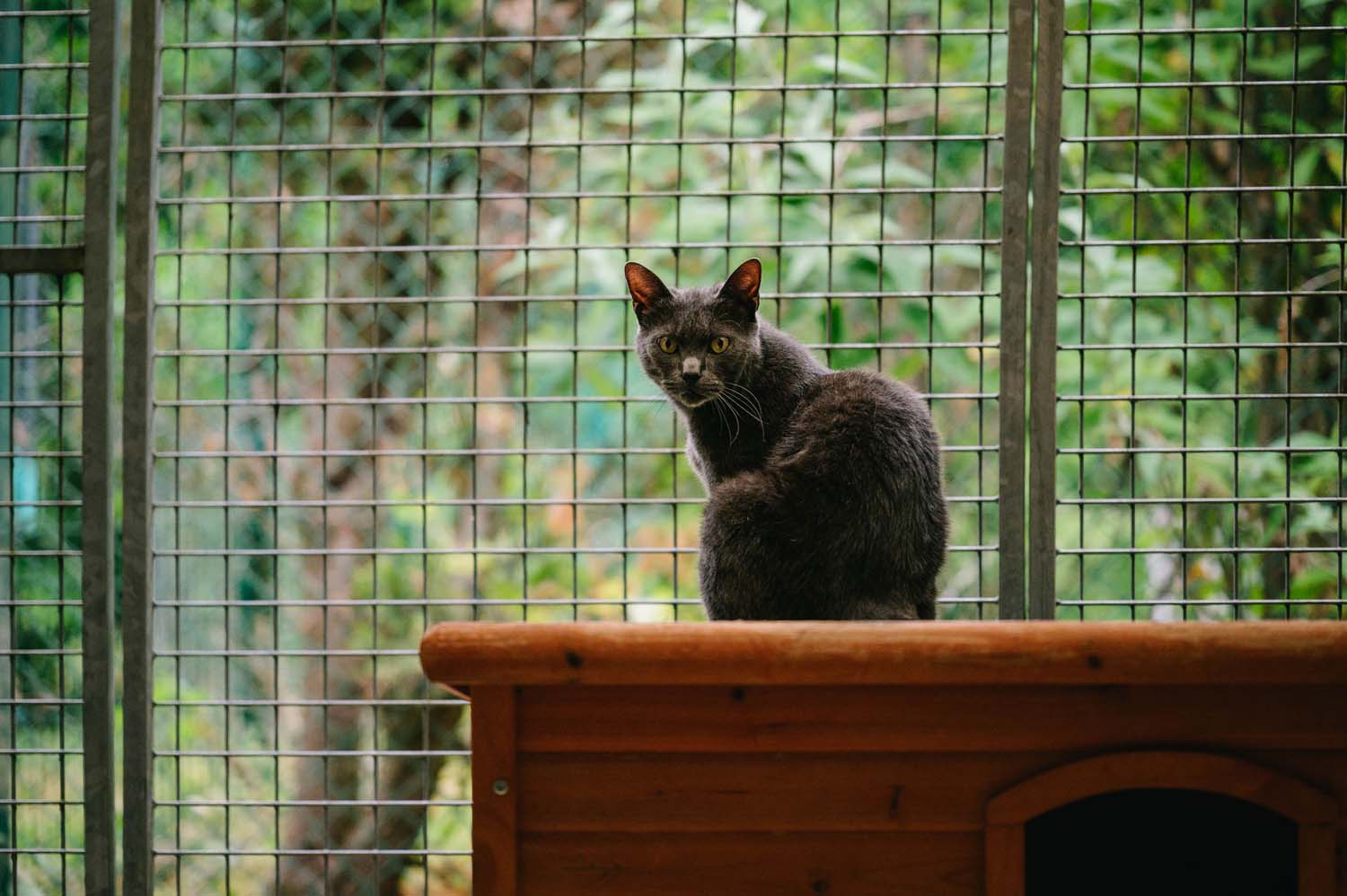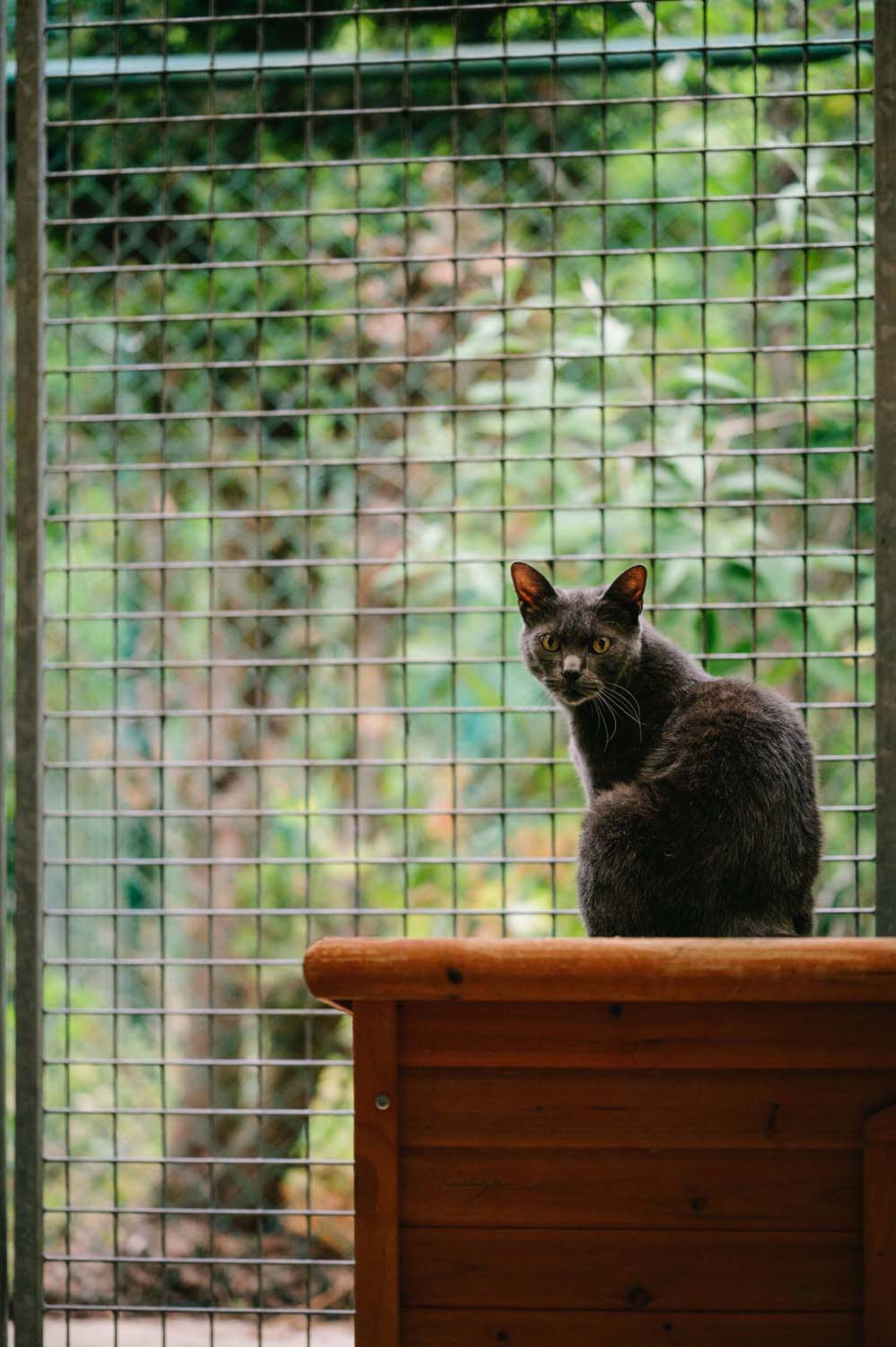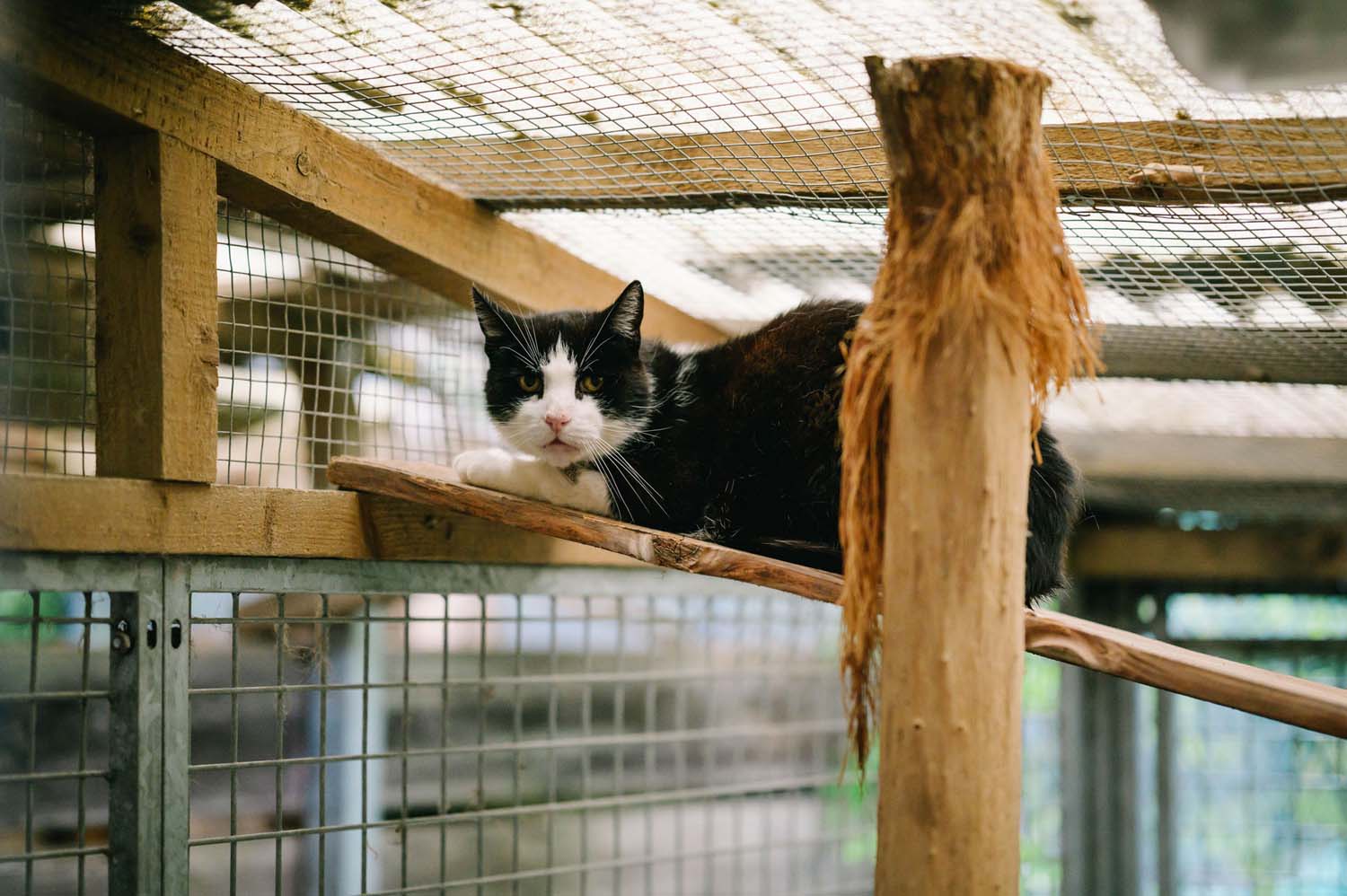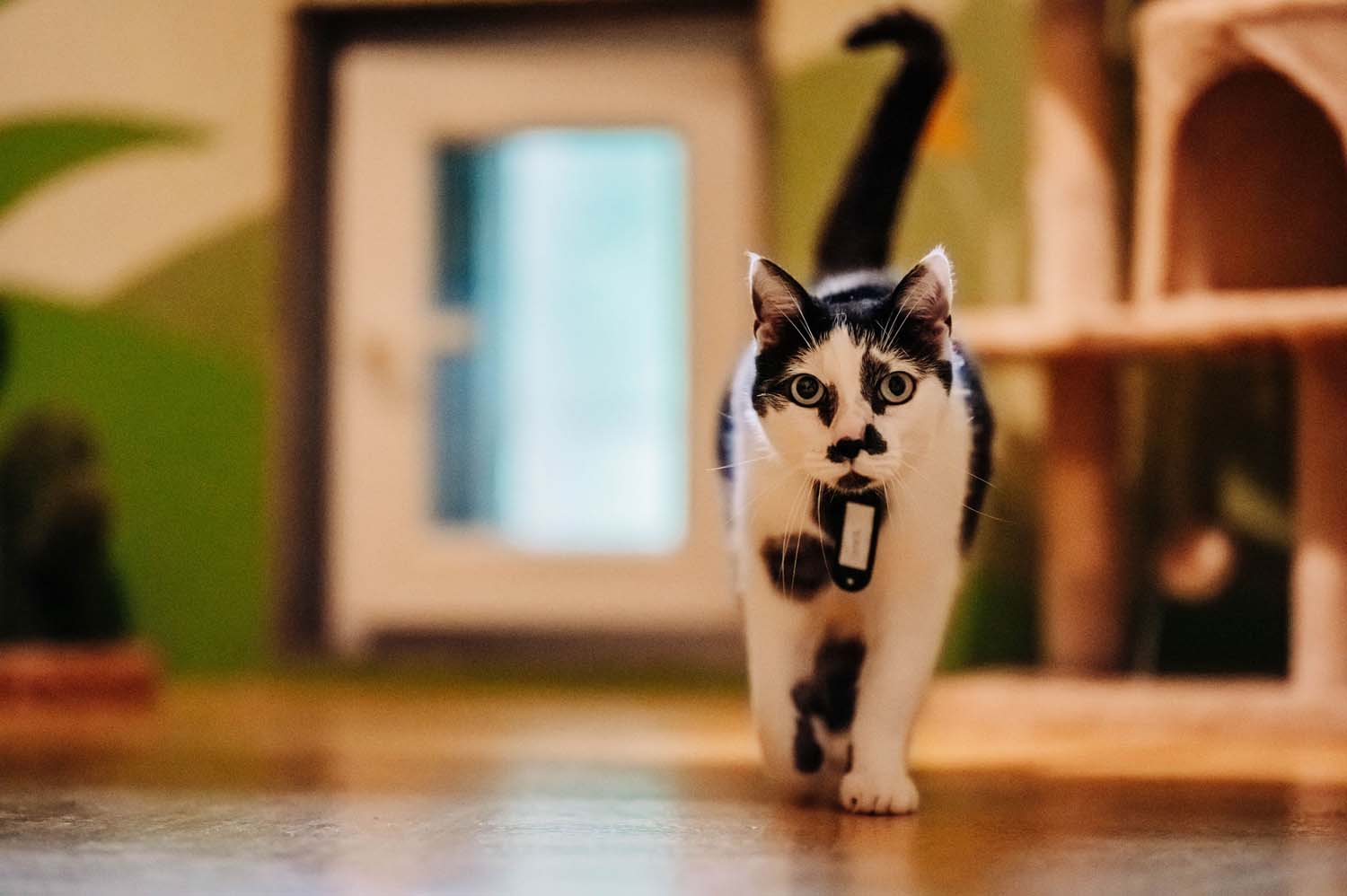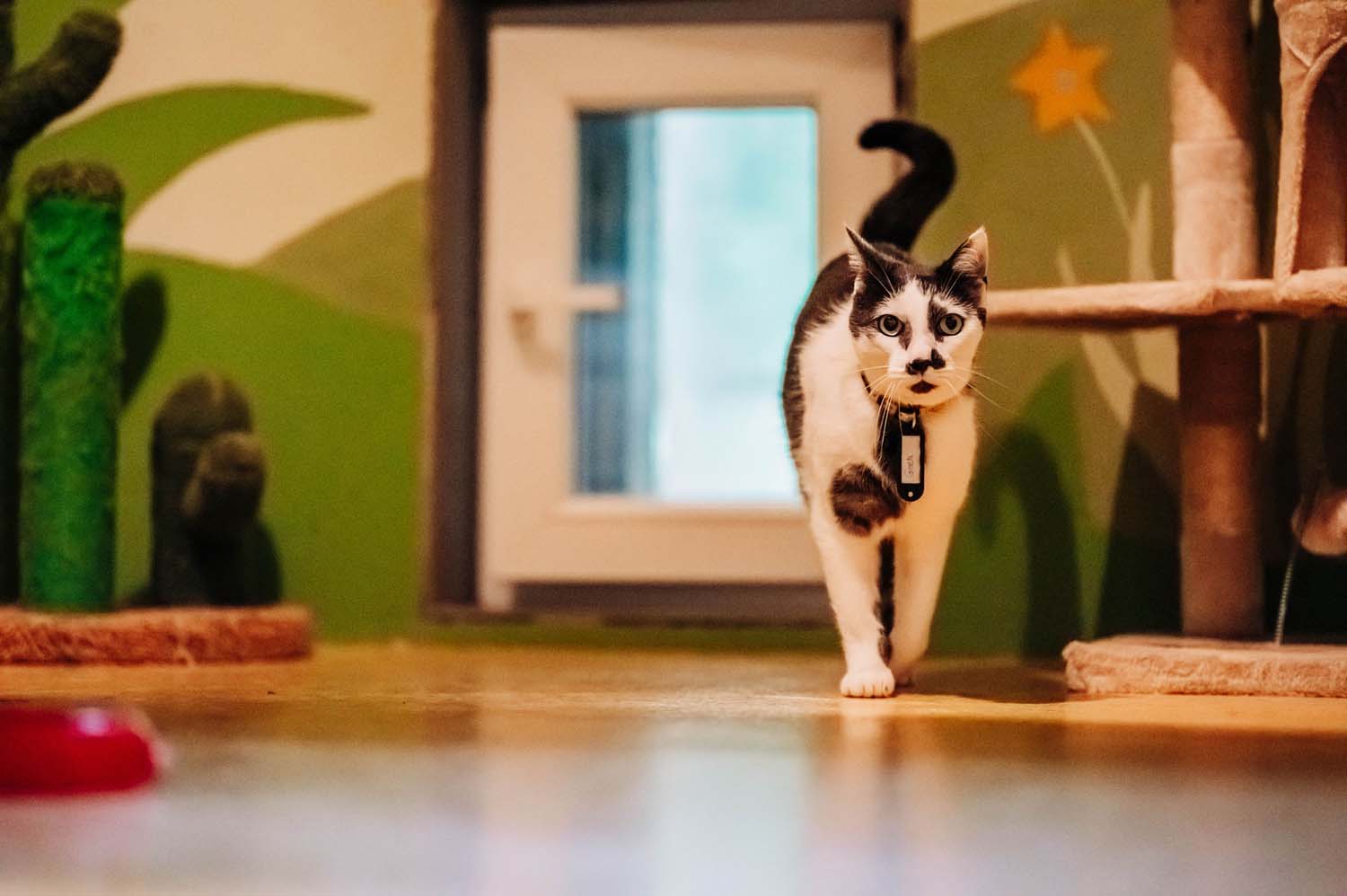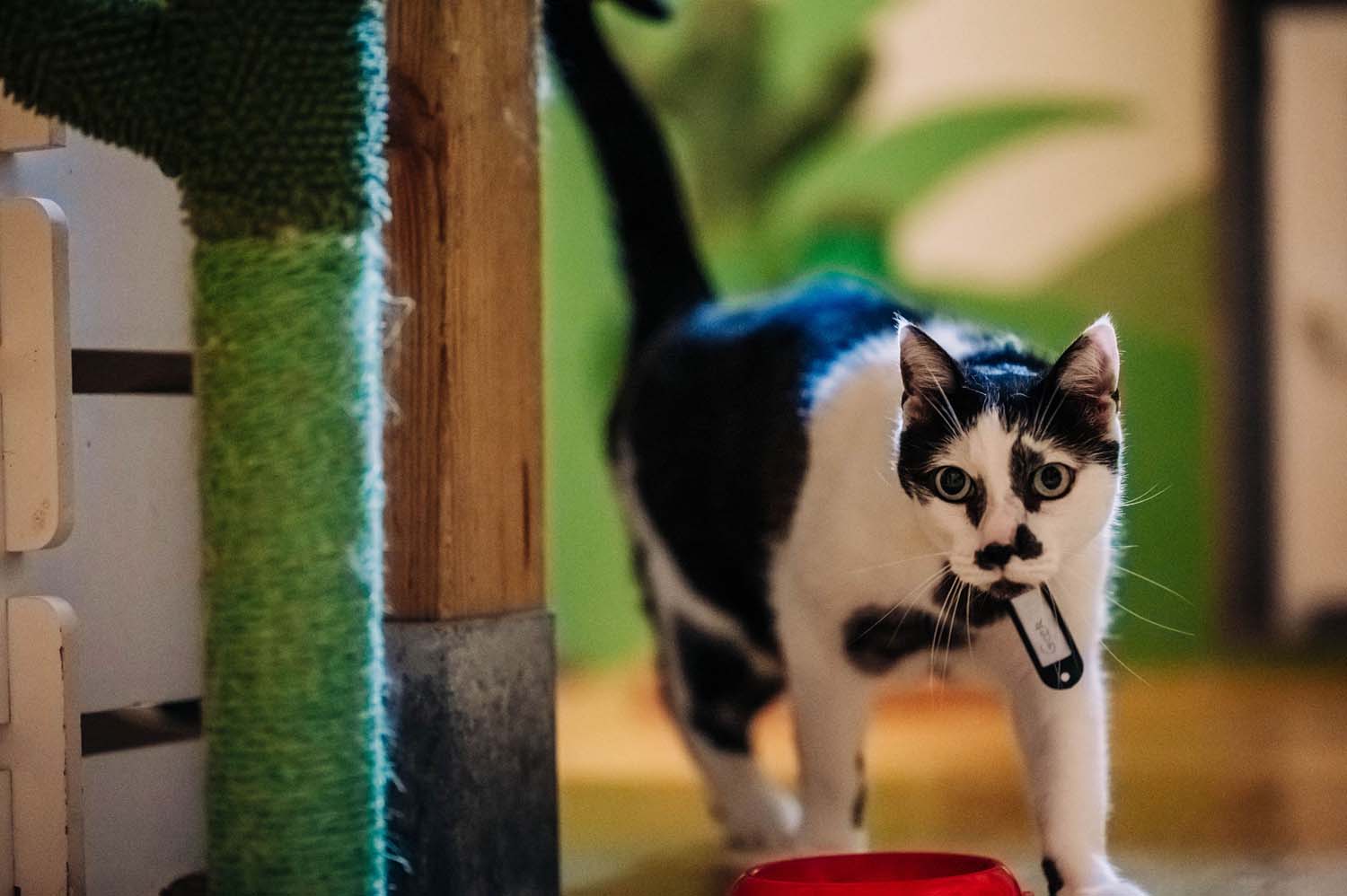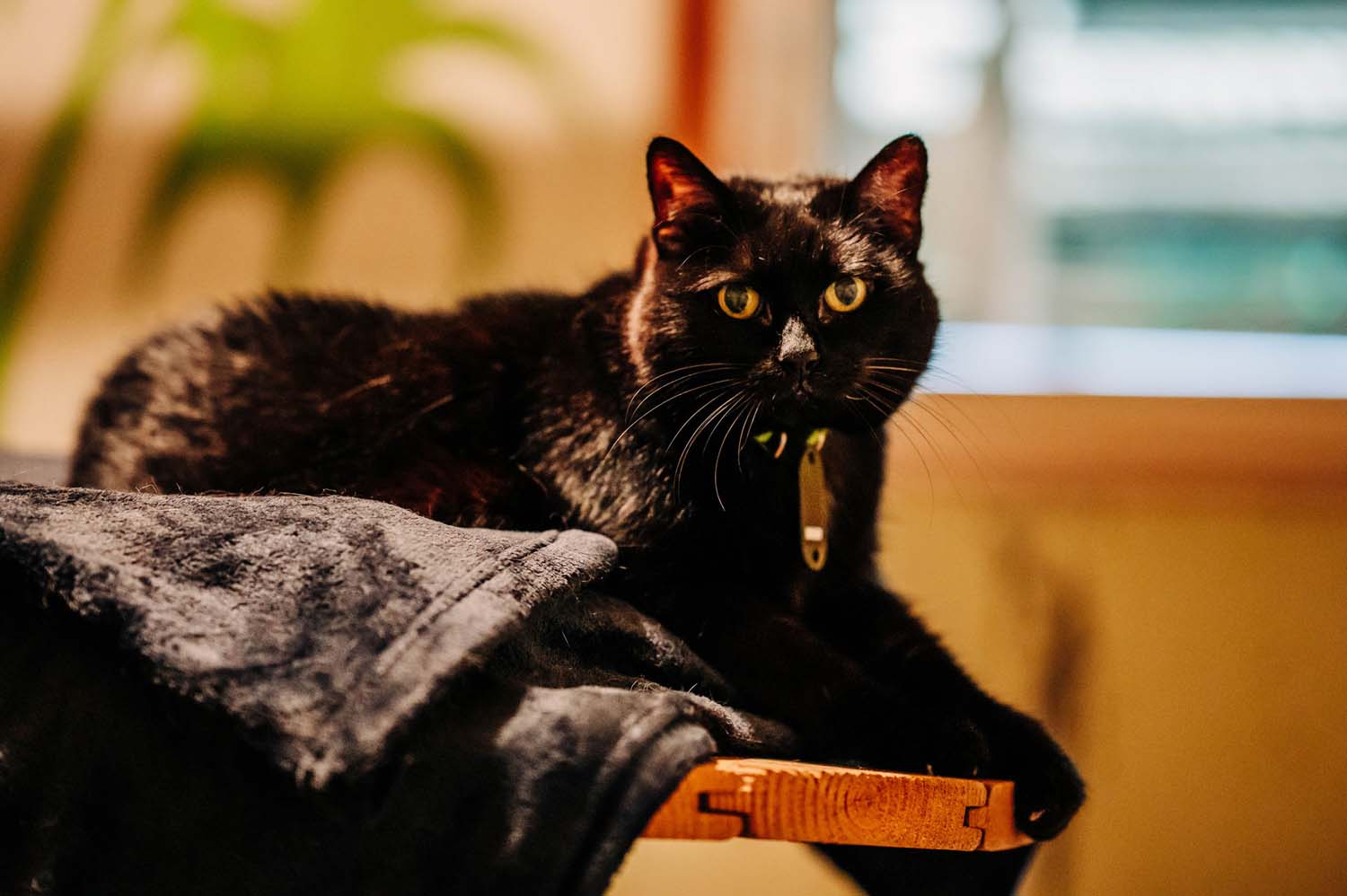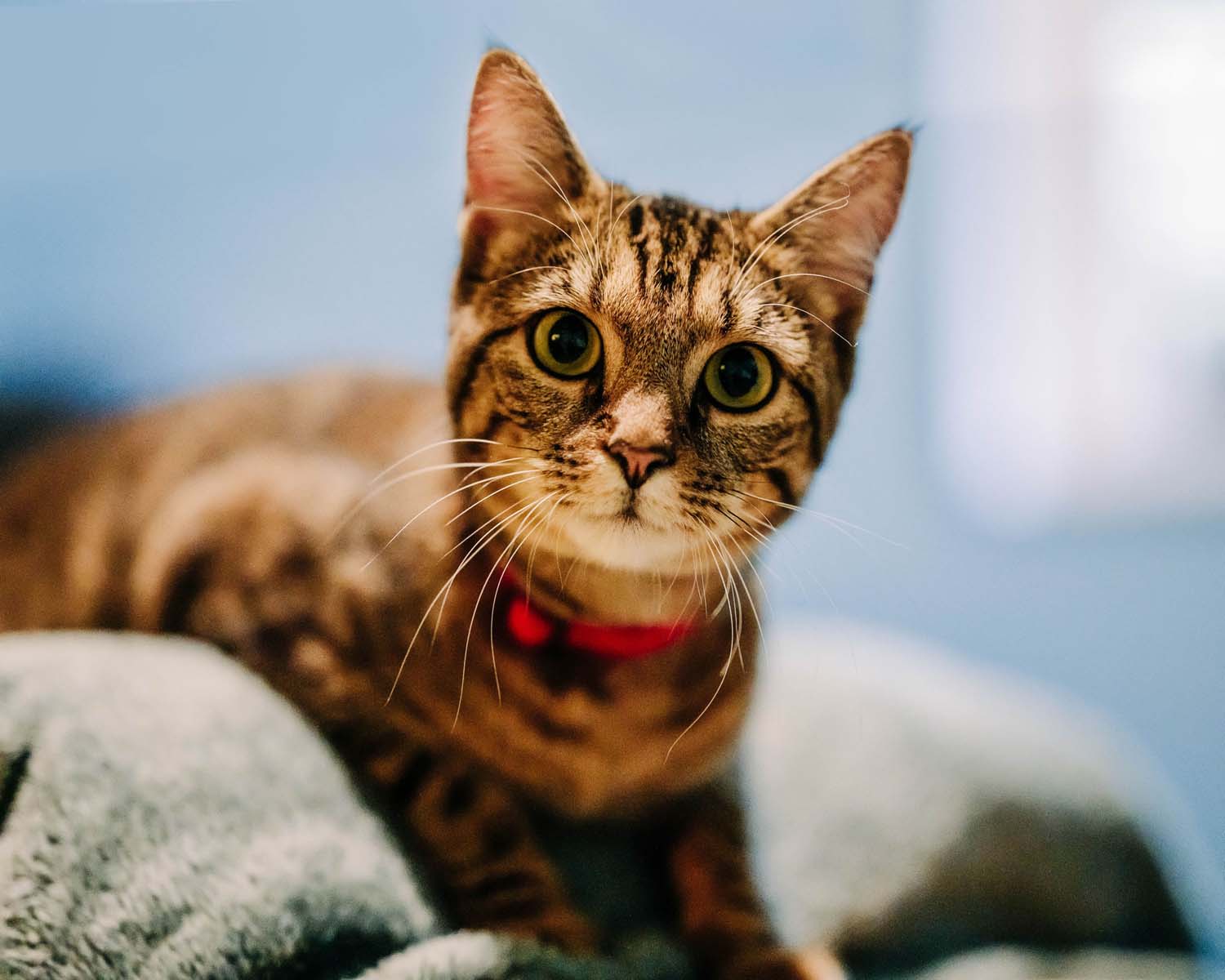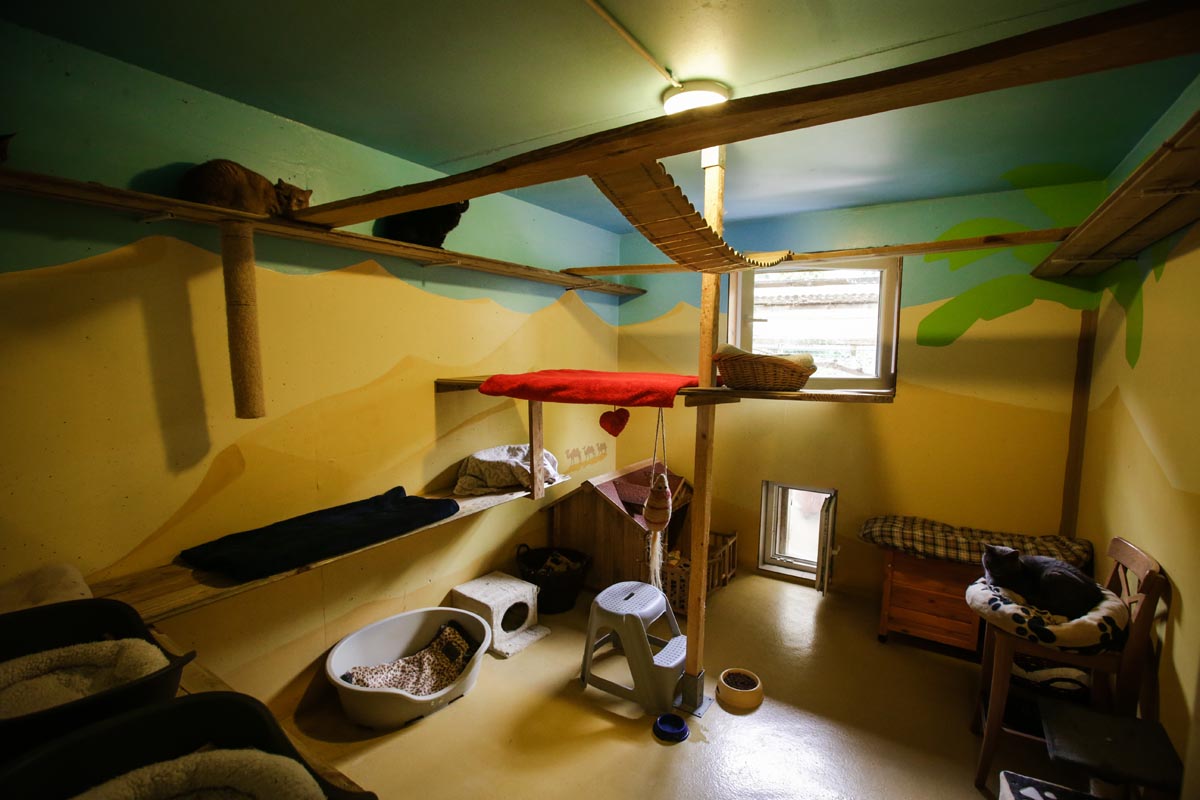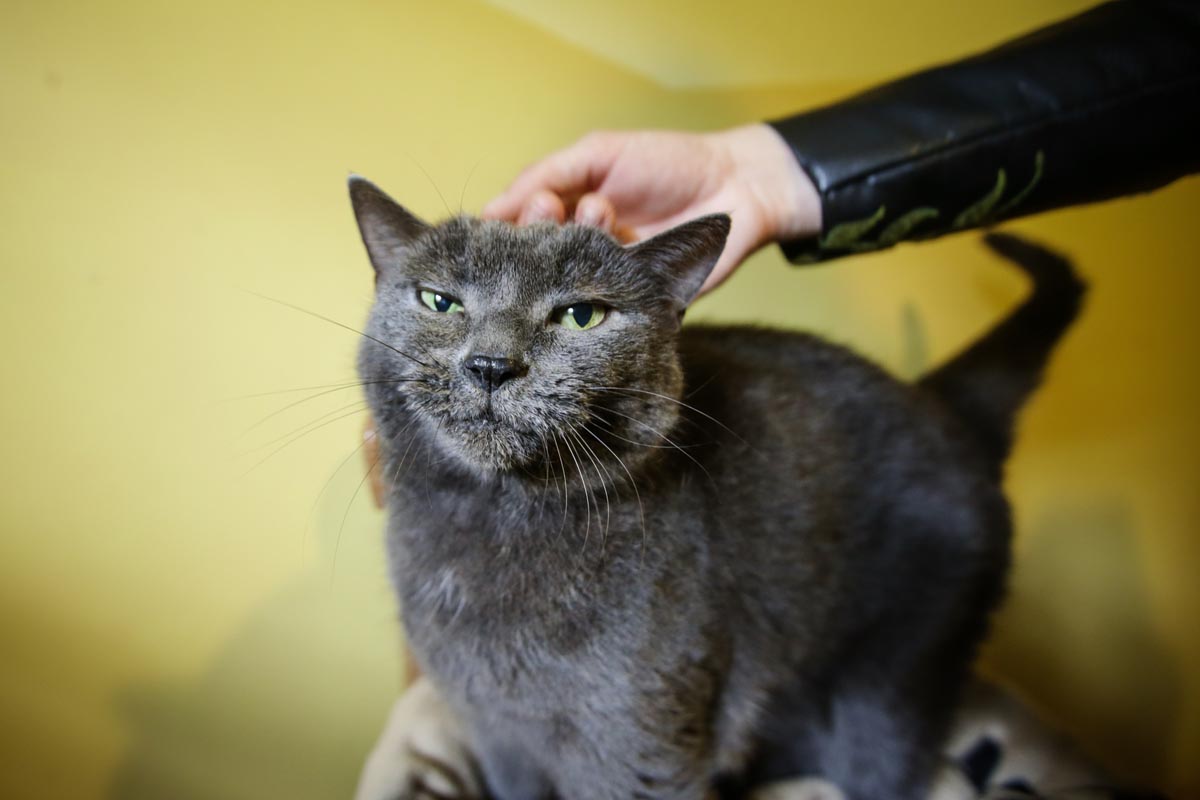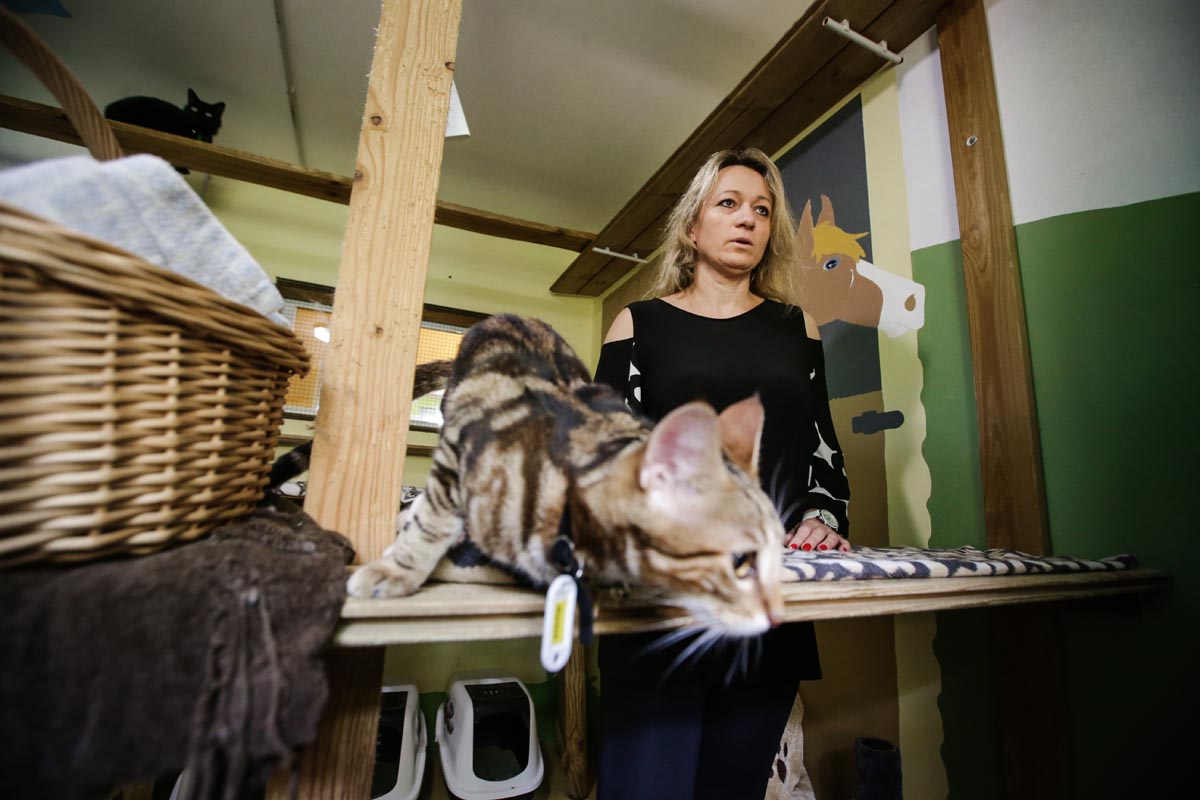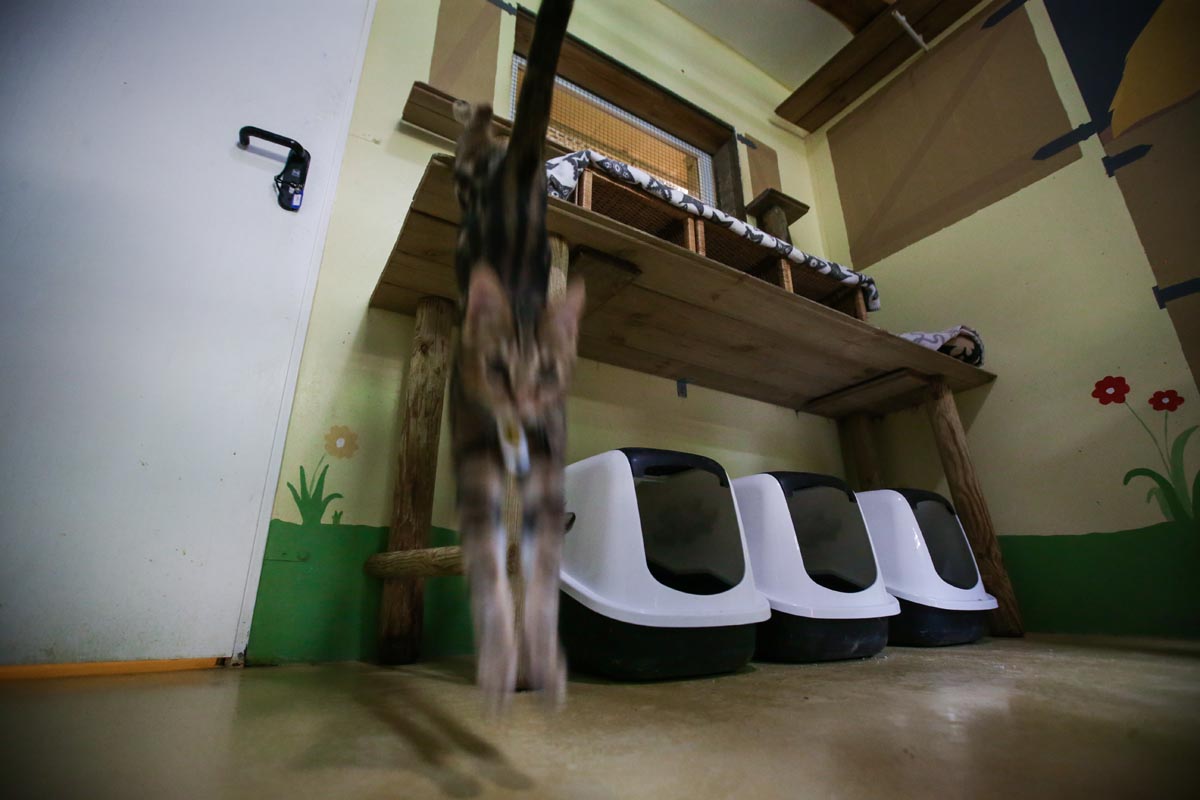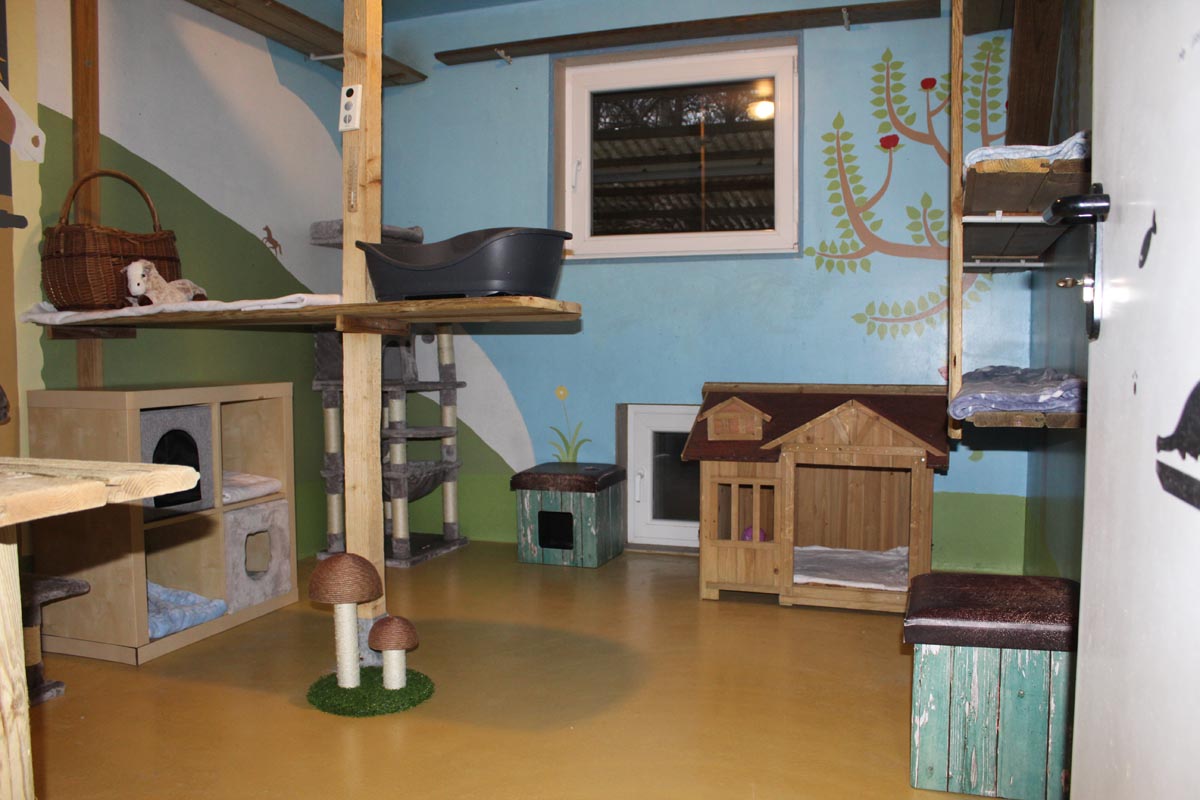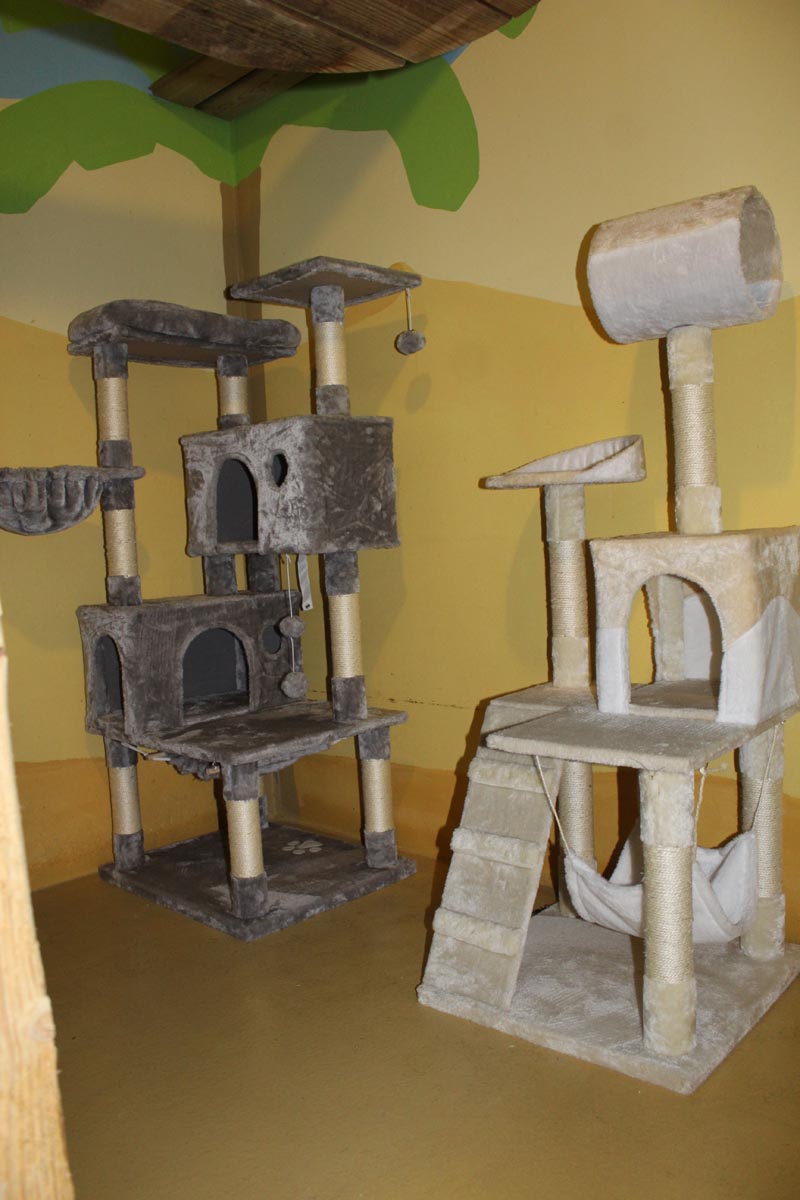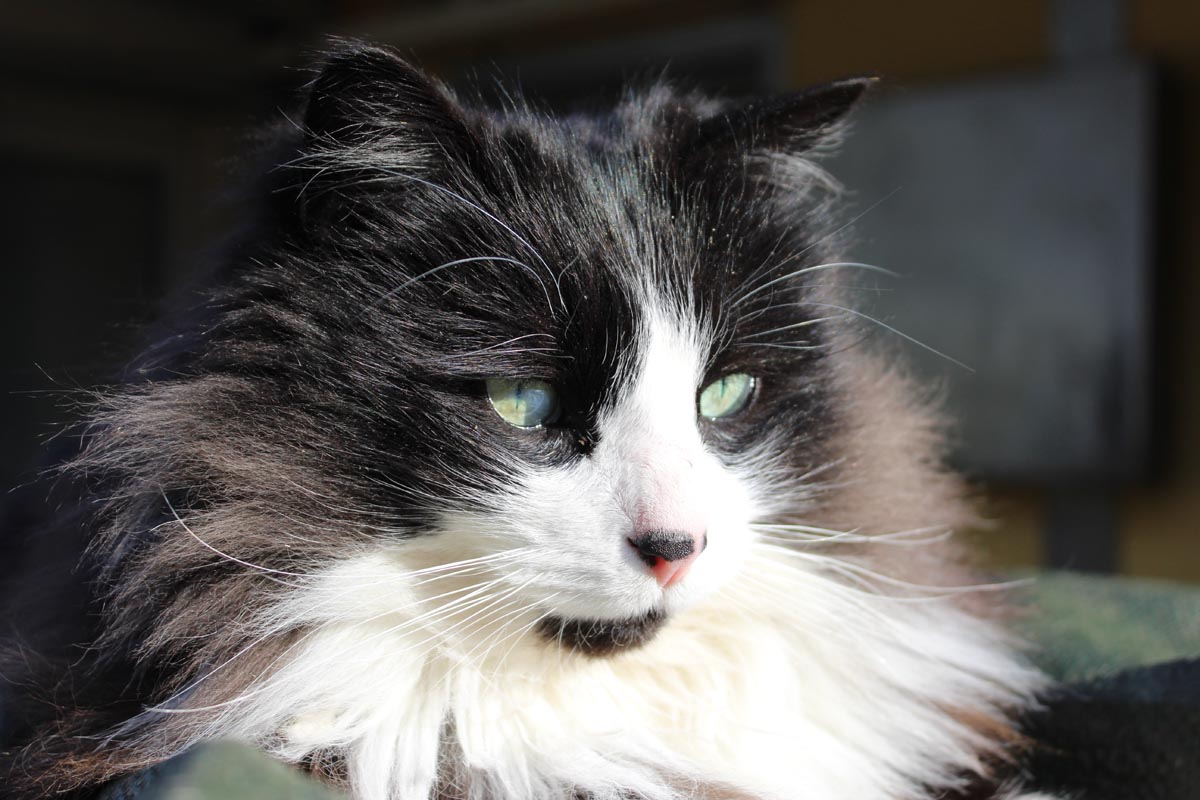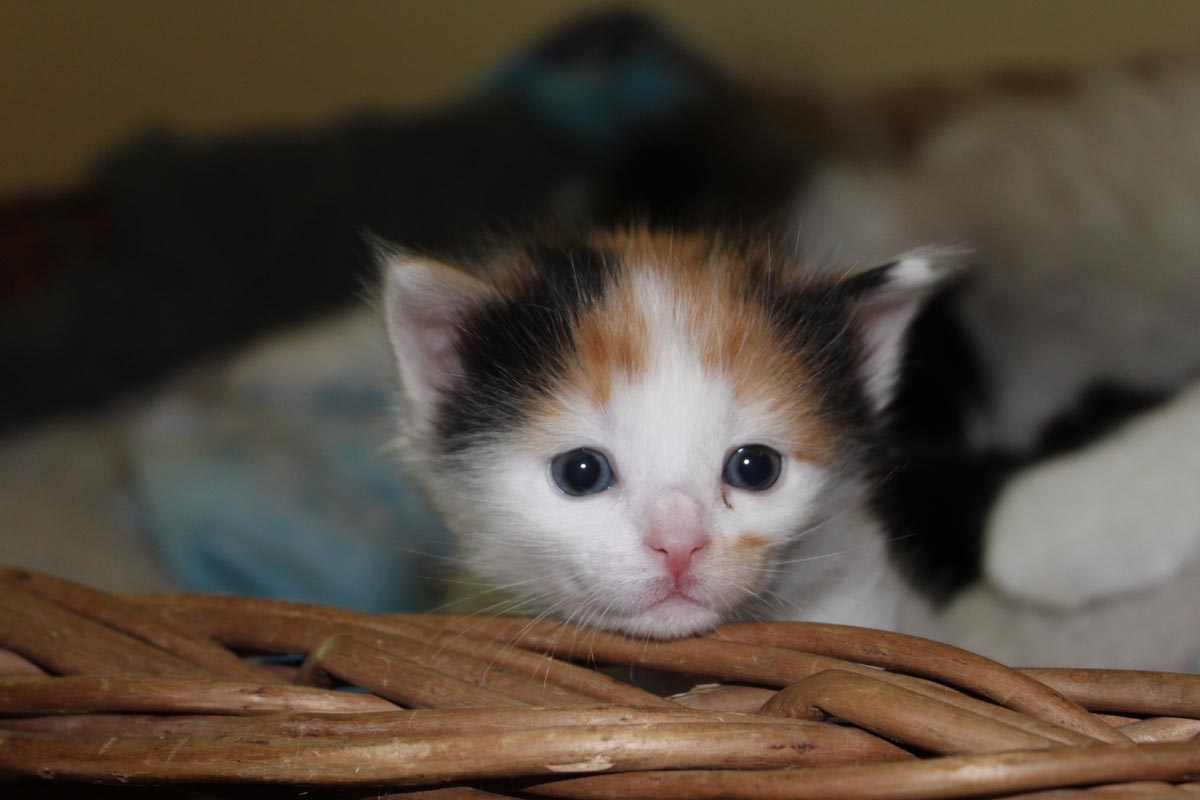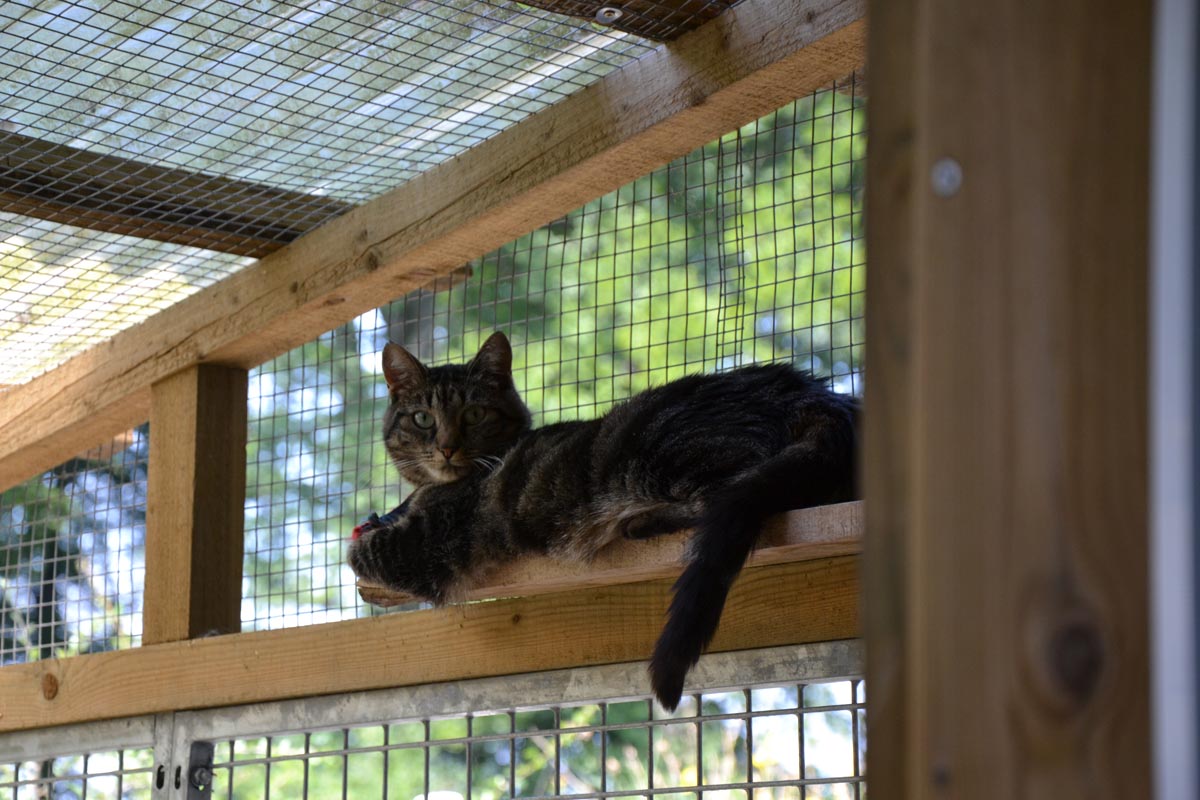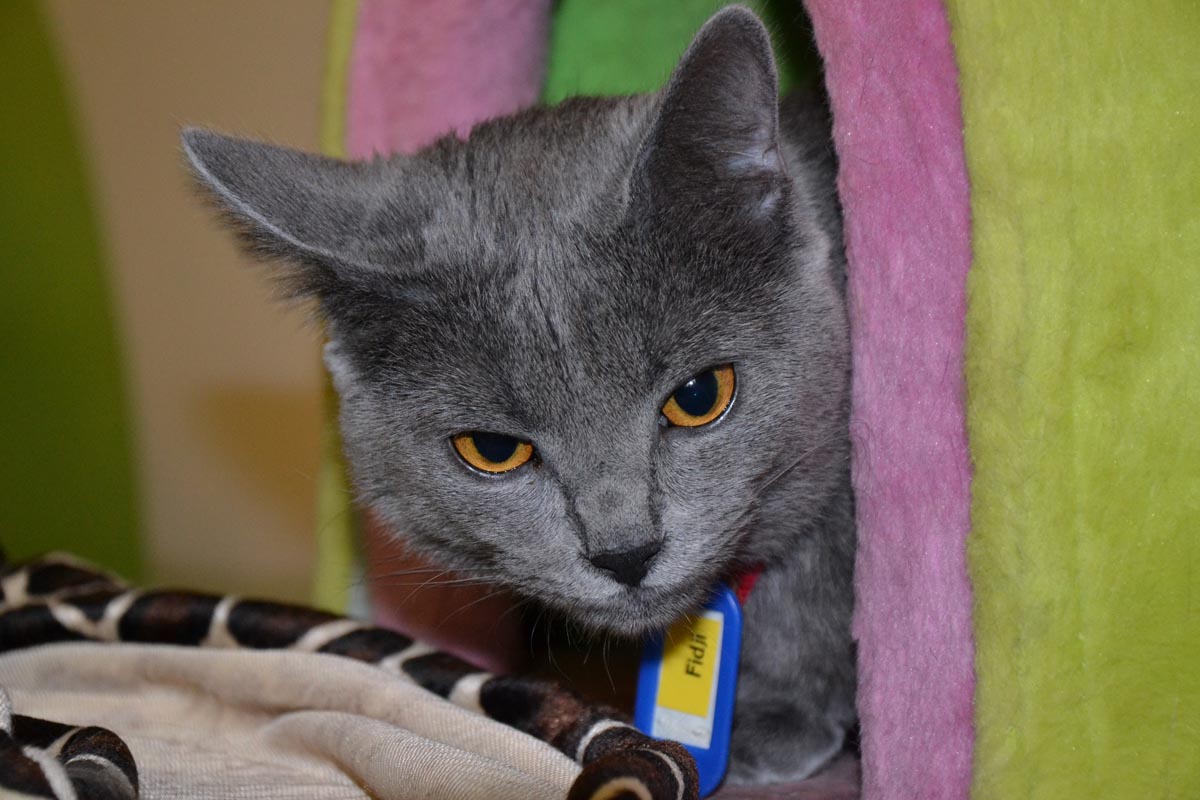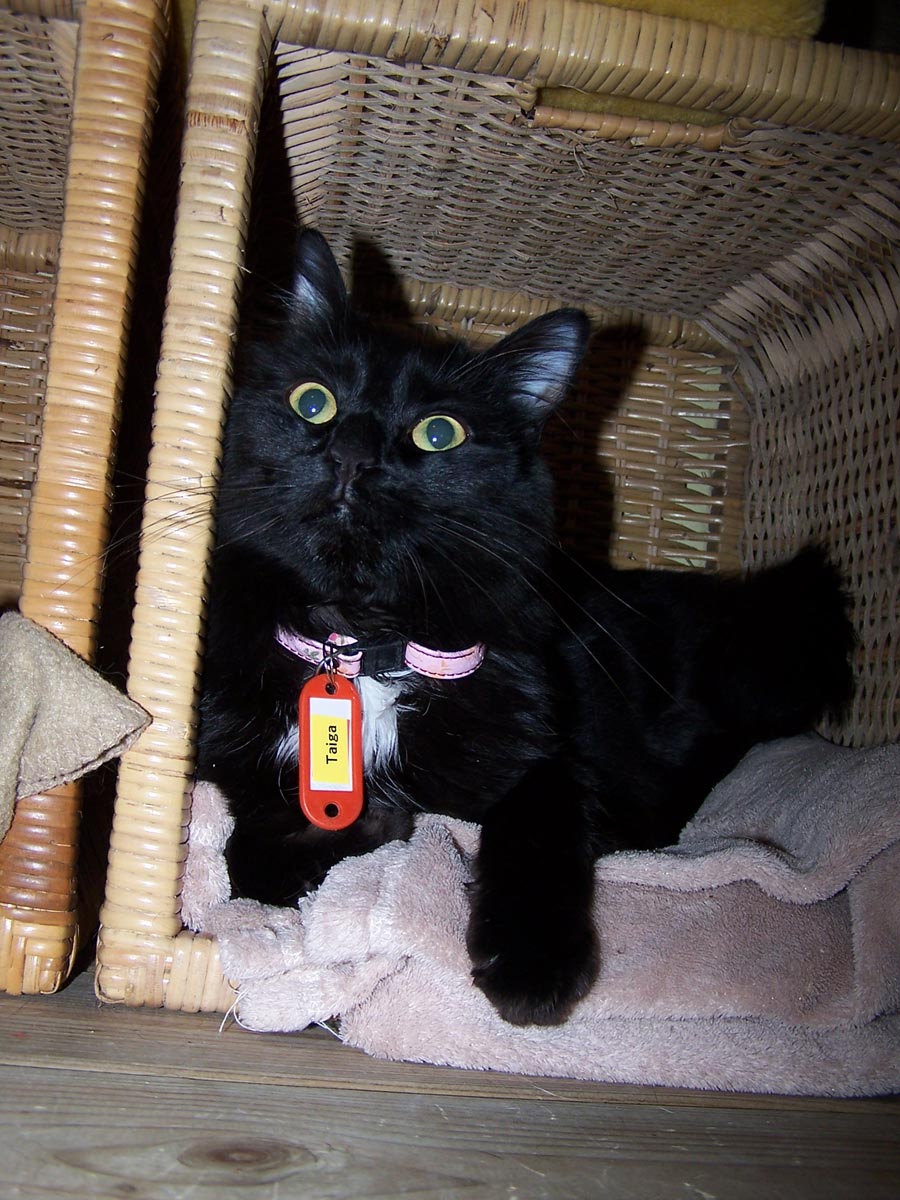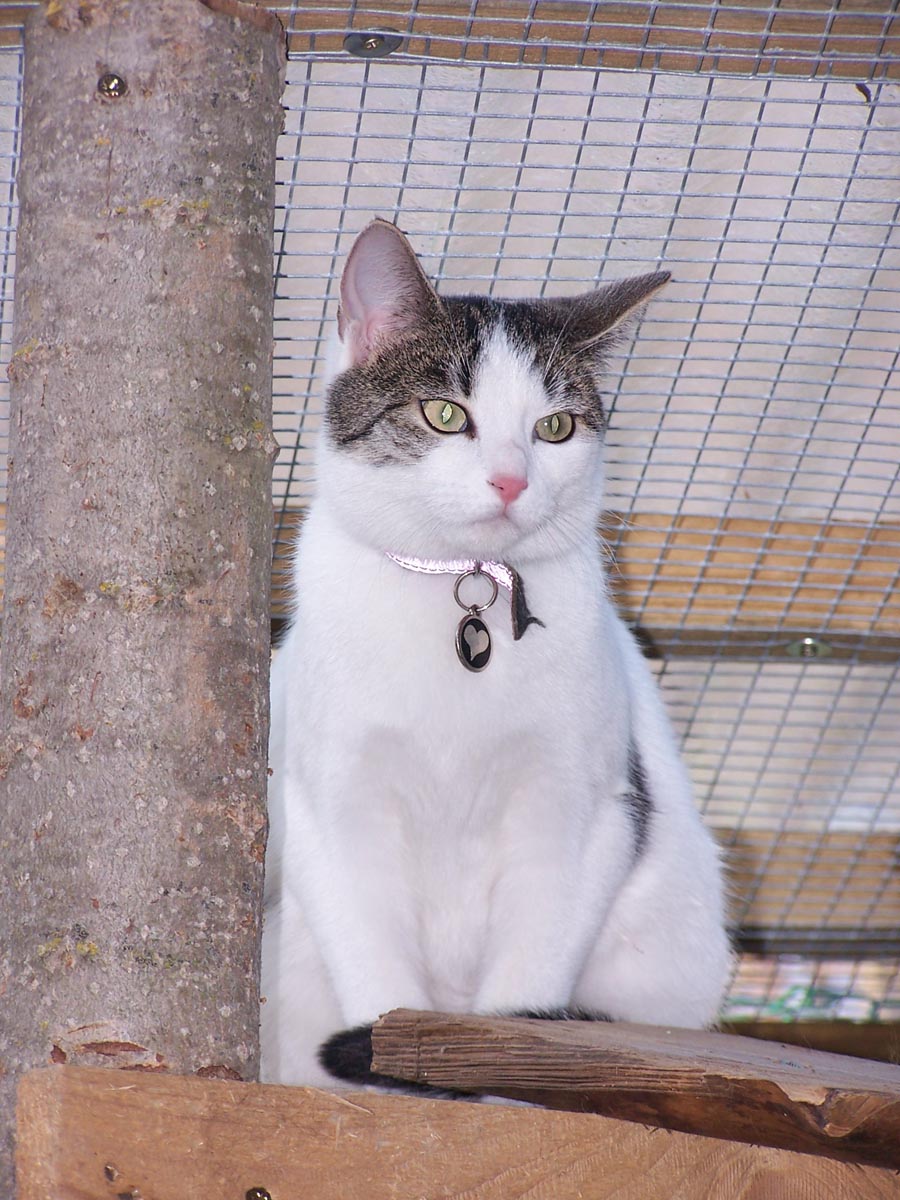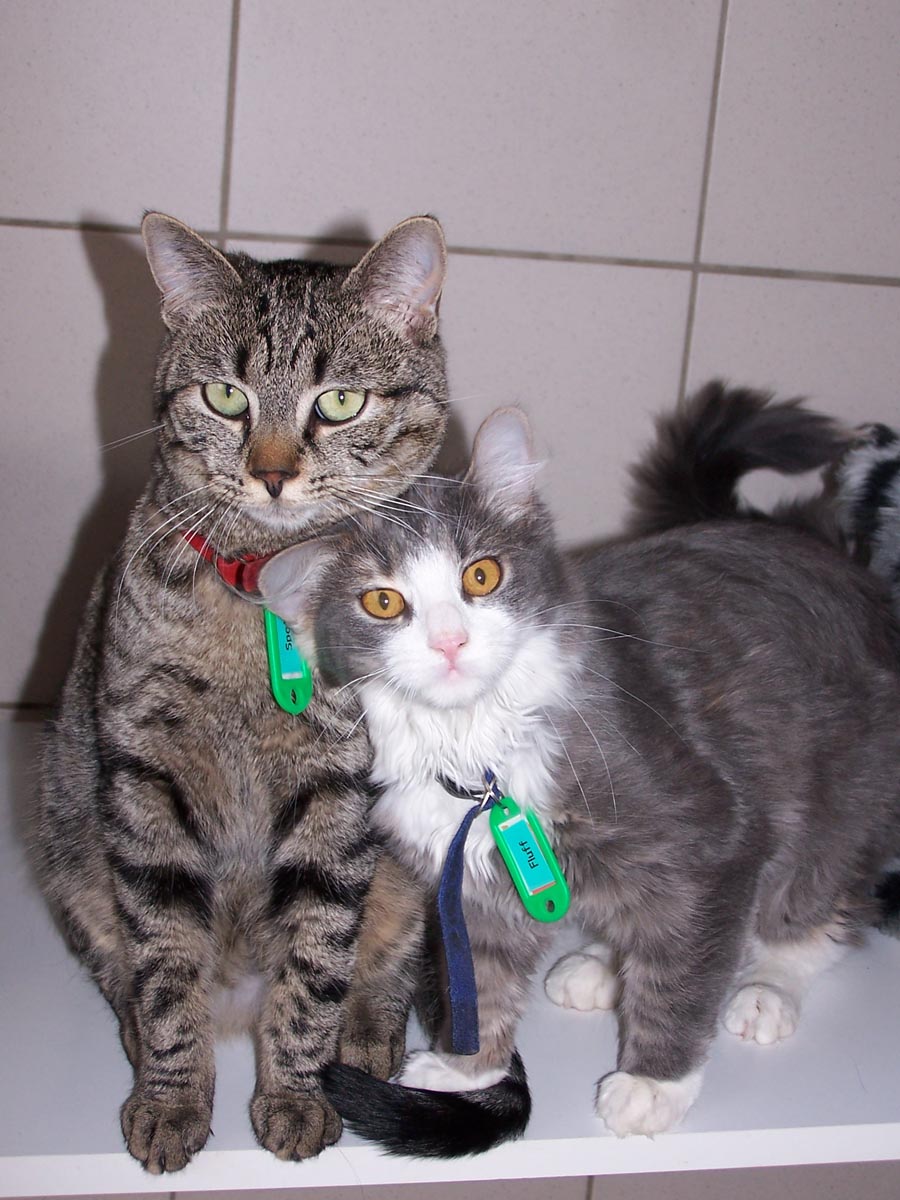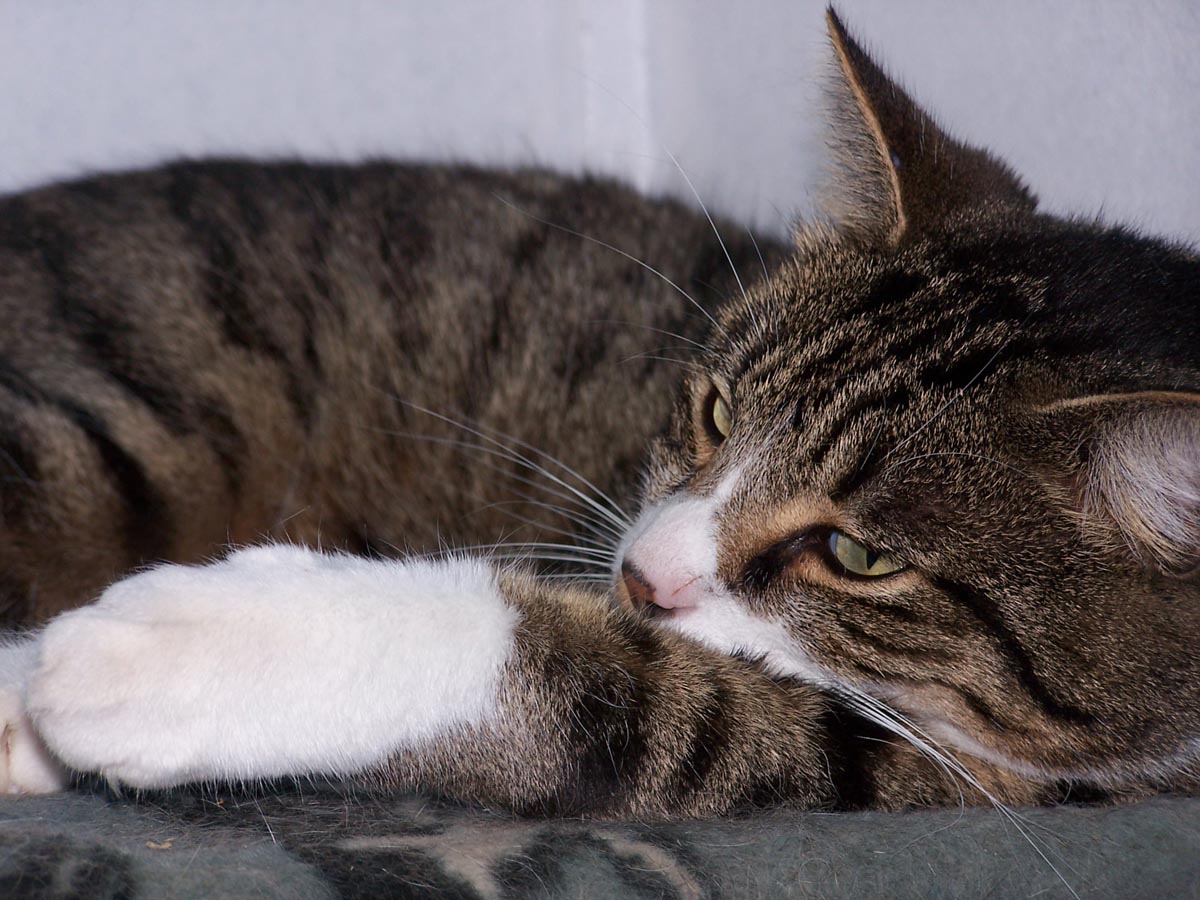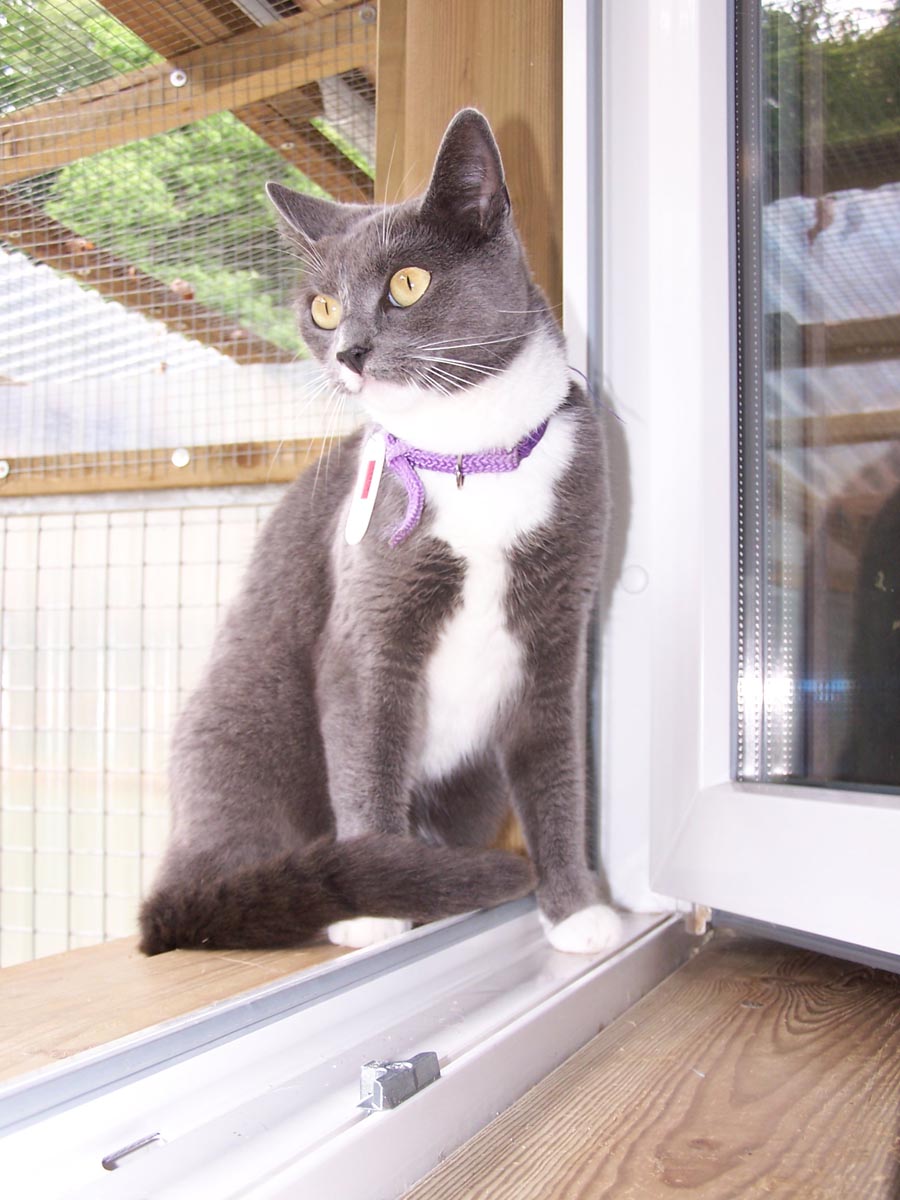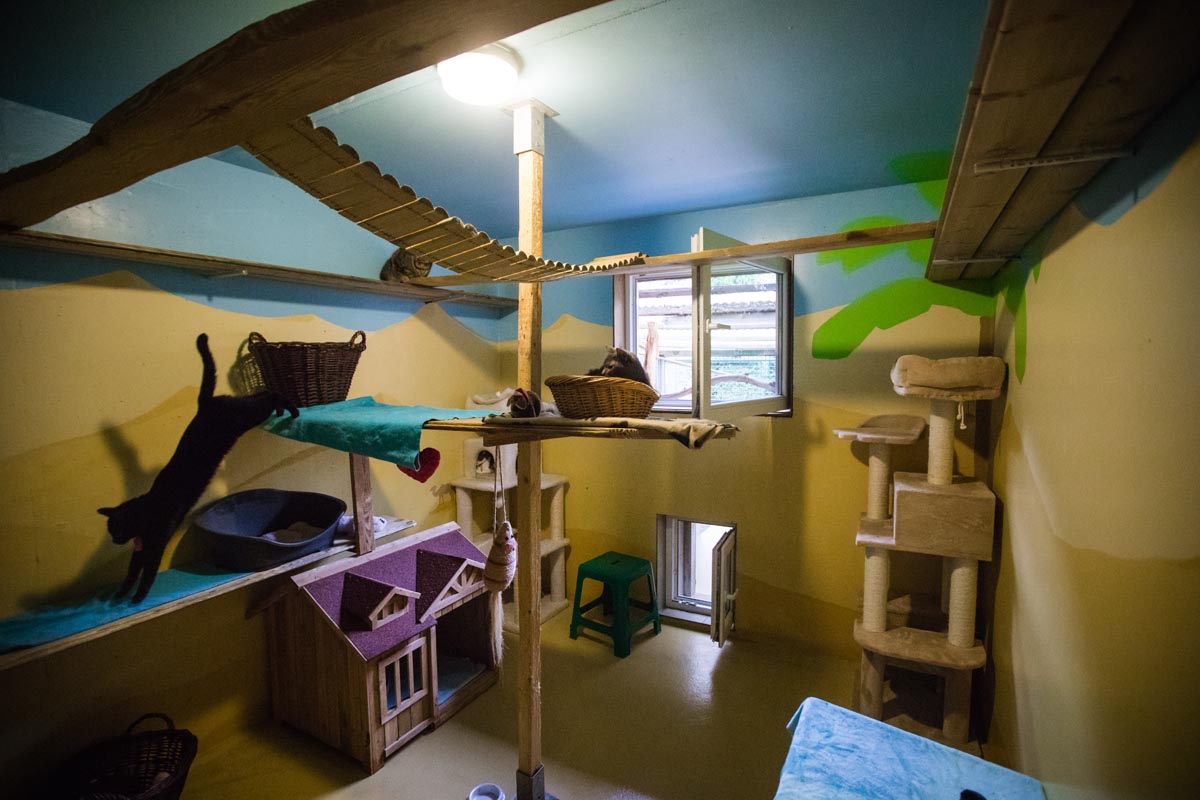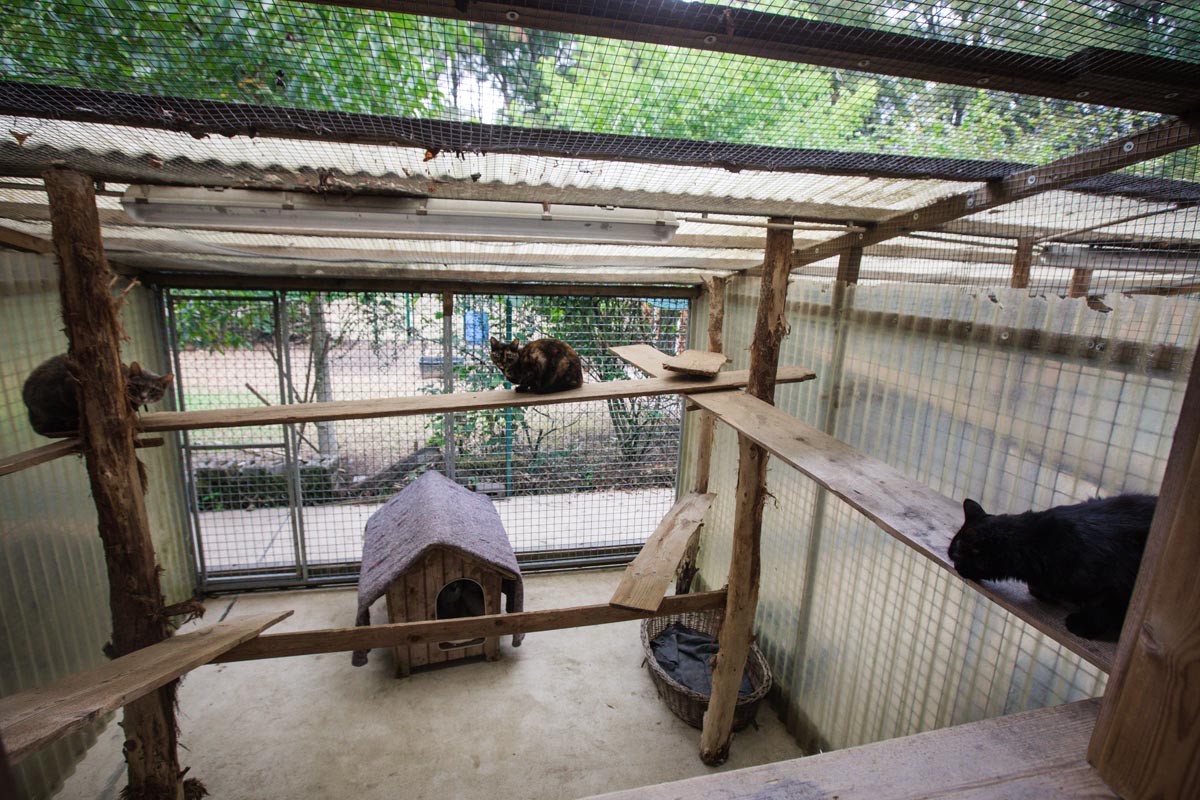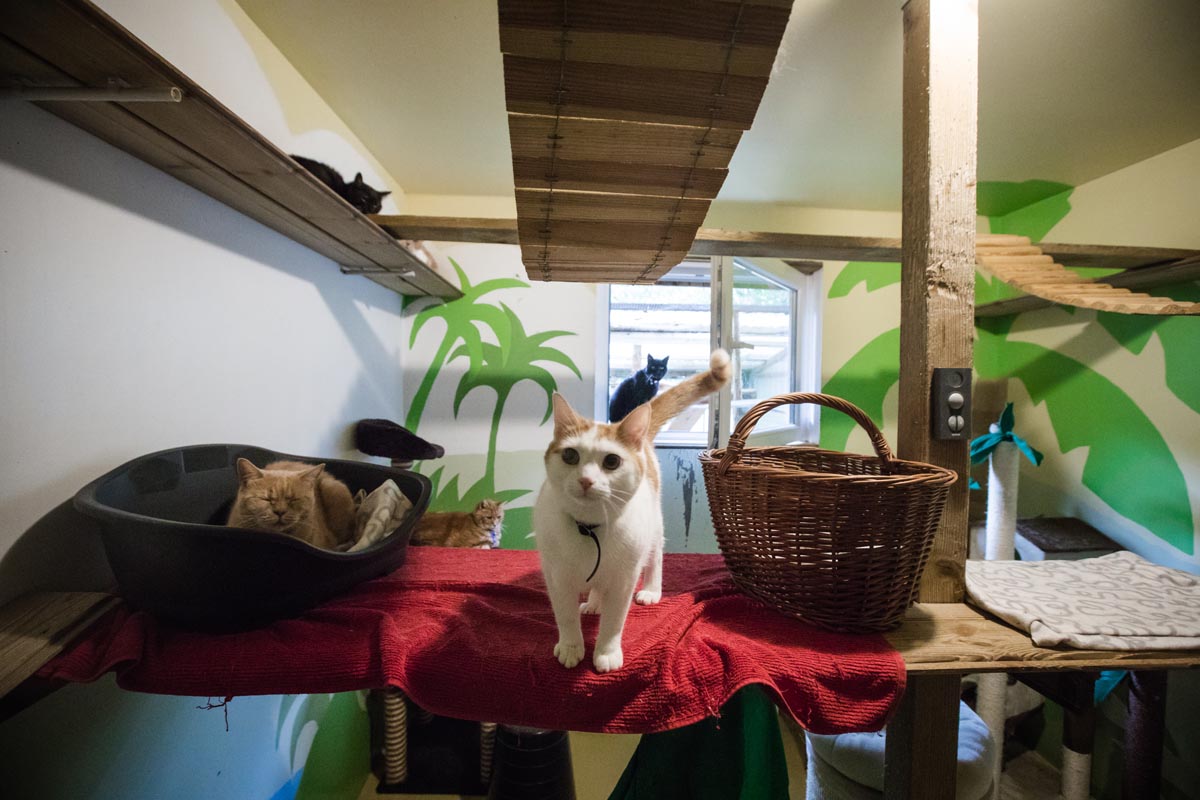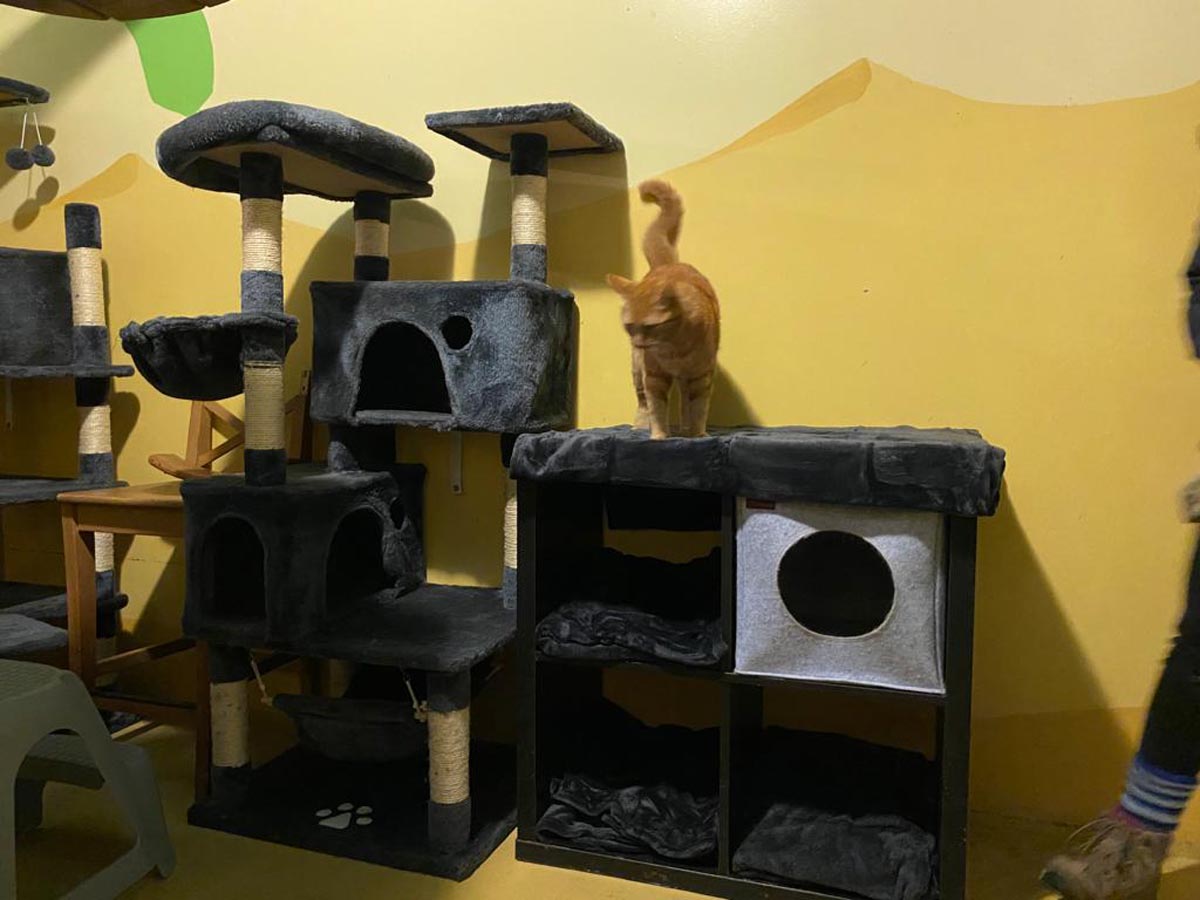Hôtel for cats
A boarding facility for active cats, used to going out at home
Cats and kittens are kept in large rooms, all with direct access to secure outdoor terraces.
Both indoors and outdoors the cats can climb to different levels or retreat to one of the many kennels. All cat rooms are heated, most with underfloor heating, to a temperature of 20-22 degrees Celsius.
The cat terraces overlook the garden and forest, or the inner courtyard and reception area of Lassie Guest House, from where the cats can watch everything that is going on outside and enjoy the fresh air. The cat terraces are fully screened, also on top, and covered, with a 2nd security corridor for maximum anti-fugue safety.
Each cat room has large windows to ensure brightness inside and especially to allow a large exchange of air.
Cats are fed kibble and wet food, as much as they want.
For cats on a special veterinary or allergenic diet, you must provide us with this extra food. We will make sure that your cat only has access to its special food during its stay in the boarding kennel.
Each resident is pampered, cared for and stroked during our frequent visits to the various cat rooms. We give them the necessary attention during our presence by playing and petting.
Long-haired cats are brushed daily, as well as the cleaning of the eyes is done without extra charge, for those who are easy to handle.
Nowadays, many cats suffer from diabetes. For an extra charge, our veterinary assistants take care of the insulin injections once/twice a day. In case of doubt, the blood sugar level will be assessed before the injection. The whole process is done on the spot and a call can be made to the vet if necessary. Due to the huge demand and the high number of our regular clients, we unfortunately cannot accept any more diabetic cats at the moment.
Cats are generally territorial animals, very independent by nature and, unlike dogs, like to be left alone. Cats need at least 12 to 16 hours of sleep per day, the few hours they are awake they go hunting and grooming.
Although most cats are loners, the social life of felines depends on their habitat. When boarding, the cat leaves its usual environment and therefore its territory. There he is on what is for him a "neutral" ground. We can observe cats that have a particular affinity for certain cats and that show this by signs of affection: nose-to-nose rubbing, mutual grooming, sharing a bed and playing.
As cats are hunters, they do not like to be seen. Rooms with huge mirrors and open shelves do not allow him to isolate himself for his rest periods, nor to make himself transparent to prepare himself for the "hunt" in the game. So the rooms in our cattery are themed rooms with wooden ramps to climb and lots of niches, all giving a warm effect.
During its active periods, the cat loves to observe. He watches everything that moves, the birds outside, the guests passing by, he stands on the window sill of the room to watch the dogs passing by in the corridor when they are out in the playground, knowing that none of these dogs will be able to come near him, and especially to observe the other cats keeping him company. A new resident will first observe the behaviour of the other cat already accustomed to the place. This is how he will know where to feed himself, find the litter boxes, go out on the outside terrace. He will also observe the behaviour of this cat towards the nursing staff and in this way will quickly gain confidence in us and in his new environment. As long as he sees that his companions are relaxed, he assumes that everything is in order and that he is safe.
Isolating a cat alone in a room would take away all these factors. Alone cats get bored and meow because they feel left out. Lassie Boarding House only has rooms available for cats where there is a medical indication to do so, and then only outside of school holidays. We are often shocked to be told about cat kennels that offer cages or small kennels in the cellar or attic of their facility. A cat needs to get out, have fresh air, light AND social contact with people and other cats to feel comfortable.
A boarding house for active cats, used to living in a flat:
Active indoor cats who are boarded take full advantage of the boarding days to experience the outdoors. Very often our new visiting clients are worried that their cat will ask to go outside again when they return home.
But in the 20 years of our boarding experience, these clients have all come back and been delighted with the experience. They ask again for one of the rooms with an outside terrace and tell us that their cat did not change its routine back home and did not make the connection between the outing to the boarding house and a walk outside the flat.
Of course, if it is cold in winter, we keep a close eye on the cats in our care to make sure that they do not stay outside for too long, and if this is the case, we bring them back inside.
A boarding house for "elderly" cats:
Senior cats can be placed either in a room with an outside terrace or in one of the large, light and airy rooms on the first floor, where we keep a close eye on their appetite and overall health.
A cat is considered senior between the ages of 10 and 12, and old from the age of 15. The ageing of the cat affects its daily routines. An older cat will want to sleep more, enjoy a quieter environment and eat smaller portions. Their eyesight, sense of smell and hearing may deteriorate over time.
Older cats often suffer from other diseases than younger cats and the risk of becoming ill increases with age. As a boarding kennel, we must be alert to any changes or symptoms of illness in the cat in our care, so that we can treat it in time and provide it with a dignified life during its stay.
The main diseases of the older cat are
arthritis and joint disorders
oral diseases,
kidney failure, stones and urinary disorders
hyperthyroidism and behavioural problems
diabetes, high blood pressure and other cardiovascular diseases.
Benign or malignant tumours.
Skin abscesses
Ageing in cats is less visible than in dogs. And yet, we must face the facts: they too have aged, even if, in this area as in others, cats know how to be particularly discreet.
Medication prescribed by your veterinarian can be brought into the daycare centre for the duration of your stay and is administered by our veterinary assistants. During your visit or phone call, we can decide together which facility will be the most suitable for your cat.
